Hitler Hated Christ Superthread
Start here to see the bulk of evidence that Hitler hated Christ
This is a Substack version of my pinned thread on twitter/X, placed into a more readable format that will hopefully remain intact as opposed to the X version which decided to break itself and die previously. This post will be broken down by dividers to reflect the segmentation of the original pinned thread. I intend to continually update this post.
Huge thanks to Dr Weikart for his efforts of source retrieval and compilation, a good portion of this is based on the information found in this book, with many more additions of my own discovery especially later on in this article.
Hitler's youth organization Hitler's Youth introduced a song at the 1934 Nuremberg Party Rally which included such heretical statements as referring to Adolf Hitler as spiritual "mediator" and referenced the Swastika as the method of redemption.
Hitler did not believe Christian art and aesthetic to be compatible with national socialism. He stated plainly: “A Christian era can only possess a Christian art, a National Socialist era only a National Socialist art.”
A few days after Christmas in 1939, Joseph Goebbels made the following observation about Hitler: “The Führer is deeply religious, but entirely anti-Christian. He sees in Christianity a symptom of decay. Rightly so. It is a strata deposited by the Jewish race.”
Goebbels reported that Hitler wanted to "wage war against" the Catholic church. It was very straightforward to those with strategic relationship to Hitler that his outward image pertaining to Christianity did not match his ultimate beliefs and intentions in relation to it.
According to Alfred Rosenberg, Hitler divulged his anti-Christian stance and “more than once emphasized, laughing, that he had been a heathen from time immemorial,” and that “the Christian poison” was approaching its demise.
Hitler did not believe the church (and by extension their moral doctrines) should have any sway over the state. He clearly did not believe the origin of true morality to be communicated though Christ's bride.
Rosenberg and Goebbels both recorded a conversation in which Hitler referred to Christianity as an "evil" that he believed was on par with syphilis. Hitler said this in a conversation quoting Schopenhauer- a renown anti-Christian that Hitler revered.
In January 1941, Goebbels recorded in his diary that Hitler was riled up against scholars, but he made an exception for Nietzsche, who, he asserted, “proved in detail the absurdity of Christianity. In two hundred years it will only remain a grotesque memory.”
Hitler critiqued Houston Stewart Chamberlain for being *too accepting* of Paul's teachings, which make up a significant portion of the new testament.
Hitler's closest friends and confidants consistently reported that Hitler harbored almost nothing but distain for Christ. Hanfstaengl reported (like many others) that Hitler's actual beliefs were very different from what he exclaimed publicly.
Hitler did not view Christian morality as axiomatic. His worldview was distinctly anti-Christian. The concept of God becoming man and willingly submitting himself to death disgusted him. He saw it as weakness.
Hitler's metaphysical beliefs were far more informed by neopaganism, modernism, and pantheism than anything remotely resembling Christianity.
Hitler believed many parts of foundational Christian belief were "stupidity".
Hitler's view of the afterlife didn't resemble anything biblical, and the catholic church recognized and condemned national socialist ideology in this regard.
Hitler hated the central tenants of Christianity.
Between 1935 and 1938 Hitler reduced his artificial pandering to Christians and went so far as to have photos of himself doctored to disassociate himself with the cross and Christ.
Some people use the undoctored version of this photograph today to defend the false claim that Hitler was a follower of Christ.
While speaking to a crowd in 1922, Hitler affirmed clearly that he believed Christianity (whatever this meant to him) was "created" only for Aryans. This belief directly contradicts not only Christ’s teachings but the Catholic church and every form of orthodox Christian belief.
Hitler viewed "positive Christianity" (of which he was a proponent of) as the best method to "finish off" Christ's bride.
Hitler claimed Jesus must have had a father who was Aryan and denied the virgin birth.
In a 1926 Christmas speech Hitler was reported to have proclaimed that the work Christ began HE would finish. Later, Otto Wagener would affirm also that Hitler did not believe in the resurrection of Jesus, claiming Christ’s body was removed from the tomb for the purpose of not creating a relic.
Goebbels recorded that Hitler was "horrified by the ceremonial nonsense" of Catholic mass. Hitler also remarked that he didn't want a any priest within 10 kilometers of his funeral.
In 1920 Hitler claimed the Jews used Christianity to destroy his beloved Roman Empire, affirming Hitler's ill view of Christianity and adding the fact he believed it is tool of the Jews.
Hitler was not be forthright about his his view of Christianity in most circumstances, as Rudolf Hess confirms. Hitler valued his popularity (leading to power) more than he valued truth.
Hitler was extremely negative towards Catholicism and went so far as to call them polytheistic pagans.
The Hitler’s youth and the SS produced programmatic writings that asserted the incompatibility of national socialist ideology and Christianity
This trend of undermining the faith of children more openly than attempting to do so in relation to adults falls squarely in the line of thinking that Otto Dietrich claimed Hitler was pursuing. The belief the German youth could be used to "speed the death" of Christianity.
Rosenberg repeatedly affirmed that Hitler privately rejected Christ- but Hitler was not an Atheist (at least he did not confess this to be the case).
Hitler was not shy about the result of his ideals in relation to the ultimate fate of Christ worship in Germany when speaking with his confidants. Both Goebbels and Rosenberg independently affirm Hitler's beliefs and believed the destruction of Christianity to be a future goal.
Hitler's secretary Christa Schroeder claimed that Hitler spoke often about the church in his evening discussions; according to her Hitler served an important role of "exposing the deception and hypocrisy of Christianity" to her. Her recollection corroborates statements recorded in the “table talks”.
In 1941 Goebbels confirmed again that Hitler was the "sharpest opponent" of Christianity, further explaining that Hitler's stated reason for not wanting Goebbels to withdrawal from the Catholic church was a strictly tactical decision.
Hitler held Christianity in contempt and directly stated that it was in conflict with the worldview(s) he wanted to propagate. He believed that following Christ was an obstacle to overcome and a way of life that should be put to bed.
Hitler believed material reality (science) to be in stark conflict with the body of Christ, equating what he saw as the “natural laws” with science, and being irreconcilable with the teachings of the church.
Later in the Reich, Hitler's monologues became more and more charged with Christ hatred, referring to Christianity as a "poison" and directly expressing his distain for Christlike doctrine.
Hitler rejected Paul and thus his Epistles, claiming that Paul caused Christianity to be too egalitarian and harkening in widespread ideas of Nietzschean slave morality.
In the Hossbach Memorandum (1937) Hitler said: "It was only the disintegrating effect of Christianity, and the symptoms of age which appear in every country, which caused ancient Rome to succumb to the onslaught of the Germans."
Hitler was extremely concerned about the destruction of Greco-Roman sites. He proclaimed "It (Christianity) has deformed all noble humanity." The same year Hitler ranted that Christianity was a lie and "a monstrosity of the Jews."
Hitler was warm towards Catholicism in some instances over Protestantism (and vise versa oddly enough), but stated either way outright that he did not believe a synthesis of National Socialism and Christianity was possible.
Hitler's relationship to a scripture was not doctrinally orthodox by any stretch of the imagination and on several occasions he defamed it outright. His opinion of scripture was reflected clearly in the attempt by his "Positive Christianity" to undermine biblical foundations.
Hitler believed the Christian doctrine of salvation was "unusable" and said it was idiocy.
According to Rosenberg, Hitler directly acknowledged the incompatibility of National Socialism and Christianity after the death of Hanns Kerrl following Kerrl's failure to unite the protestant church under Nazism.
Martin Bormann (appointed by Hitler) sent a letter to Nazi regional leaders in 1941 stating that "National Socialist and Christian views are irreconcilable" and then went on to claim Christianity was based on ignorance while Nazism was based on science. (making it superior)
Ernst Von Weizsäcker, Nazi ambassador to the Vatican, reported that Himmler told his wife: “We shall not rest until we have rooted out Christianity.” Himmler's SS was reported to have kept church leaders under surveillance and proposed policies to limit their activities.
Ernst von Weizsäcker added his claim to the many others that Hitler was very careful to not publicly defame the churches even though his ideology was strictly opposed to them. Hitler would also state once again they could not coexist.
Ludwig Müller was appointed by Hitler to be the Reichsbischof (Bishop for the Reich). Later Müller rejected Christ and apostacized. Hitler, seemingly unbothered by this, required him to remain in the role and continue to lead the heretical "German Christians" movement.
There was no doubt in the minds of any of Hitler's inner circle that his ultimate goal was the subjugation of Christ's bride.
Any correlate of Christian worldview and Hitler's ideological beliefs are incidental at best- he seemingly strived in scenarios where he could get away with it politically to make clear that he did not consider Christ nor true Christianity to be of highest value or worth.
Martin Bormann, operating at the will of Hitler, banned clergy from the party, removed anyone in the party "strongly committed to their religious denomination", and forbid any party leader from also having leadership in religious organizations/churches. They saw it as a conflict.
Hitler critiqued the churches for not rallying behind his racial/eugenic sciences, culminating in rhetoric pronouncing Christianity's incapacity to fight Bolshevism, and announcing national socialism would supplant Christianity.
Hitler repeatedly violated the Reichskonkordat by dissolving monasteries, eliminating Catholic schools, and outlawing Catholic youth programs.
Martin Bormann (appointed by Hitler) decreed in 1939 that all religious schools, orphanages, and church camps be dissolved. Additionally, under Bormann's influence clergy were banned from teaching religion classes in public schools, a long held practice in German education.
Hitler persecuted clergy who were critical of the killing of disabled people and the Reich's removal of crucifixes from schools.
The Reich seemed somewhat inclined to not rebuild churches that were destroyed during the war and Bormann issued a directive to specifically not build churches in new urban developments. Additionally, architectural documents from Hitler's plans to rebuild destroyed cities lacked churches.
Hitler advocated the destruction a Catholic church in Linz Austria- with goals of replacing it with an observatory in a sort of deification of nature.
Hitler's conceptualization of the "almighty" was starkly deviant from Protestant, Catholic, and Orthodox canonical beliefs. He viewed nature itself as eternal and that presupposition influenced his idolization of the "Volk".
In July of 1943 the German Geheime Staatspolizei (Gestapo) killed 11 nuns in occupied Poland. They have since been declared Blessed by virtue of martyrdom by Pope John Paul II on 5 March 2000.
Theologian Walter Künneth agreed that Hitler's understanding of "Creator", "Almighty", "Providence", "will of the Lord" and other terms should not be interpreted as representing a Christian worldview but rather a Pantheistic one.
Martin Bormann (Appointed head of the Nazi Party Chancellery by Hitler) clarified the wildly held Nazi worldview position of pseudo-Pantheism, which equated nature's laws with moral righteousness. Bormann believed this worldview distinctly differed from a Christian one.
Many historians who lived through the Third Reich period affirm that Hitler's religious language became more pantheistic over time, even historians like Friedrich Heer who stressed Hitler's early "Christian" beliefs acknowledge his evolution into a pseudo-pantheistic perspective.
Hitler believed that nature was eternal, that it had a personified "will", and that defying it's "will" was what made an action immoral. Hitler also stated in a 1938 speech that submission to nature's "will" was submission to the divine.
Hitler expressed that he believed souls "return back into nature" after death, equated natural dominance of the strong over weak with "providence", and claimed that salvation lies in not rebelling against the law and "will" of nature.
Hitler's secretary Christa Schroeder affirmed that Hitler deified the laws of nature, construing them with providence in a neo-pantheistic/panentheistic fashion. She also claimed that these "laws of nature" were in his mind a justification for the elimination of the "unfit".
Hitler proclaimed that liberation of the Volk would require "pride, will, spite, and hate" and biographers of the period seem to agree that his worldview was of a Nietzschean antiChristian flavor.
Revisionist David Irving affirms Walther Hewel's diary as authentic and cites it in his book "Hitler's War". Here is Irving's book as well as the original German from the diary. The original text is preserved in Institut für Zukunft in Munich.
On 11 July 1941 Hewel records Hitler explicitly saying: "Nietzsche... the actual philosopher of National Socialism".
Fragments of this can be found on Irving's own website.
Hitler asserted that attempting to escape (or not accelerate) the the "struggle for existence" was a sin, reaffirming his antibiblical "might makes right" worldview. Hitler also said that nature itself is "all-powerful" ('Allgewalt' meaning omnipotent).
Hitler was disgusted by the idea of compassion for the weak. He went so far as to refer to the disabled as "life unworthy of life" and proclaimed that God's will must be that they not be born. He also seemed keen on the idea of mass infanticide.
Hitler claimed that his conscience was subservient only to the Volk. He proclaimed that "The Volk alone is our Lord", that the voice of the Volk was "the voice of God", and stated that he had a singular faith which was in the Volk.
Hitler had deep disdain for the central tenets of Christ's message. He hated the idea of loving your enemies, sacrifice for the unworthy, turning the other cheek, etc.
Hitler's rejection of the Christian worldview did not leave sexual ethics unscathed. Although Hitler upheld what some would consider a Christian sexual ethic pertaining to homosexuality, this was based on an idolization of the Volk NOT an adherence to scripture.
One of the most damning affirmations that Hitler's worldview was not Christ-honoring was his colleagues recognition in private settings that there was serious discrepancy between his disdain for Christianity and the public image he attempted to maintain.
'The Gestapo', Frank McDonough The 4th point of the Gestapo officers
One instance of Nazi ideology fundamentally undermining scripture is the removal of "Jewish Influence" from the new testament. In this example several verses from the sermon on the mount were removed.
The Franklin D. Roosevelt presidential library has record of telegrams sent from Myron Charles Taylor to the president pertaining to Alfred Rosenberg's "30 point plan for the church of the Reich".
Here are some highlights from this contemporary intelligence:
It opens with an explanation of context as well as the first point: Rosenberg's intention/desire for the state to claim executive control over all churches in Germany.
This point makes ideological priorities clear, the exclusive state church should exist to serve race and nation primarily.
The German state was to establish the church leadership. Additional points are made emphasizing that the church was to serve the state and the state alone.
The church was to be lead strictly by state officials who believe in the necessity of Christianity for Germany.
Importation and dissemination of the Bible was to be forbidden, with an emphasis on Mein Kampf as a sort of replacement.
Some basic theology was to be established, specifying a rejection of the Christian gospel and a repudiation of the baptism of children.
A sort of ethno-religious oath was to be established
Confirmation and Christian education of children was to be forbidden
Hitler speaking on November 22, 1937: "Today a new state is being established, the unique feature of which is that it sees its foundation not in Christianity and not in a concept of state; rather, it places its primary emphasis on the self-contained Volksgemeinschaft."
As early as 1920 Hitler was making the claim that Christianity was a tool of the Jews, seeing it as a primary avenue used by them to destroy the roman empire that he idolized. Hitler, “Warum sind wir Antisemiten?” August 31, 1920
“Count Reventlow speaks about the question of God. Skeptically and with a big question mark. Our great religious need is not solved by this. What is Christianity to us today? National Socialism is religion. All that is missing is the religious genius that can break old, outdated formulas and create new ones. We lack the ritual. National Socialism must one day become the state religion of the Germans. My party is my church, and I believe that I can best serve the Lord by fulfilling his will and freeing my oppressed people from the chains of slavery. That is my gospel. And where I encounter resistance, no matter when and how, I try to break it. That is how I have come to the clear.” —Joseph Goebbels Eintrag vom 16. Oktober 1928
"Polish women who have abortions performed on them [...] are severely punished by our courts. I think this is absolutely wrong, because we have no interest in protecting and taking care of the passing on of Polish blood. Please speak to the Governor General on this matter." -Himmler
Correspondence between wehrmacht soldiers Hans Albring and Eugen Altrogge during the war, March of 1942, discussing treatment of the Jews:
Last night, we sat and talked—about things that make one ashamed to be German. What you hear here about how the “chosen people” are being treated. This has nothing to do with anti-Semitism anymore; it’s inhumanity of a kind one should no longer believe possible in the 20th century, this “enlightened, modern era.” How will we ever atone for this? Hearing such accounts (and here you get them firsthand) makes one despair at the meaning of our fight. But what else is left for us? Shut up and continue to serve—








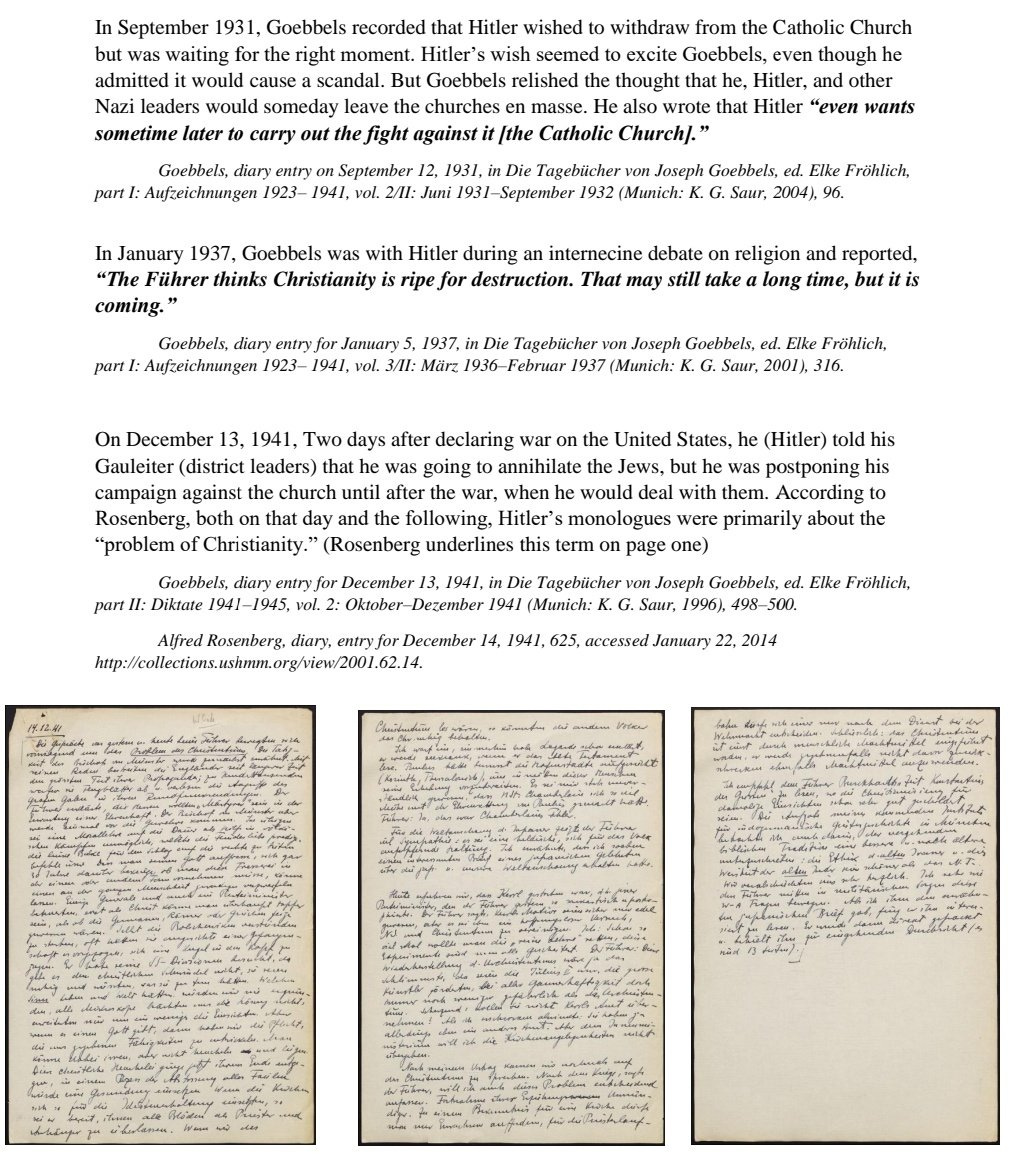


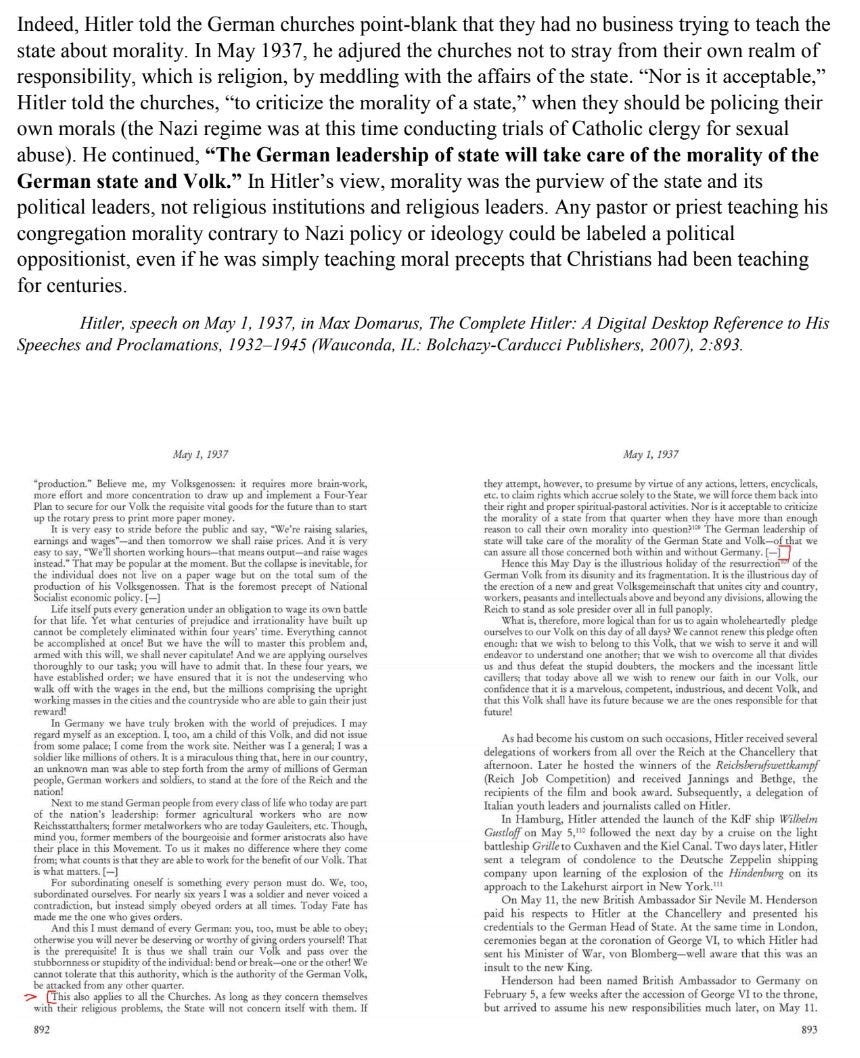



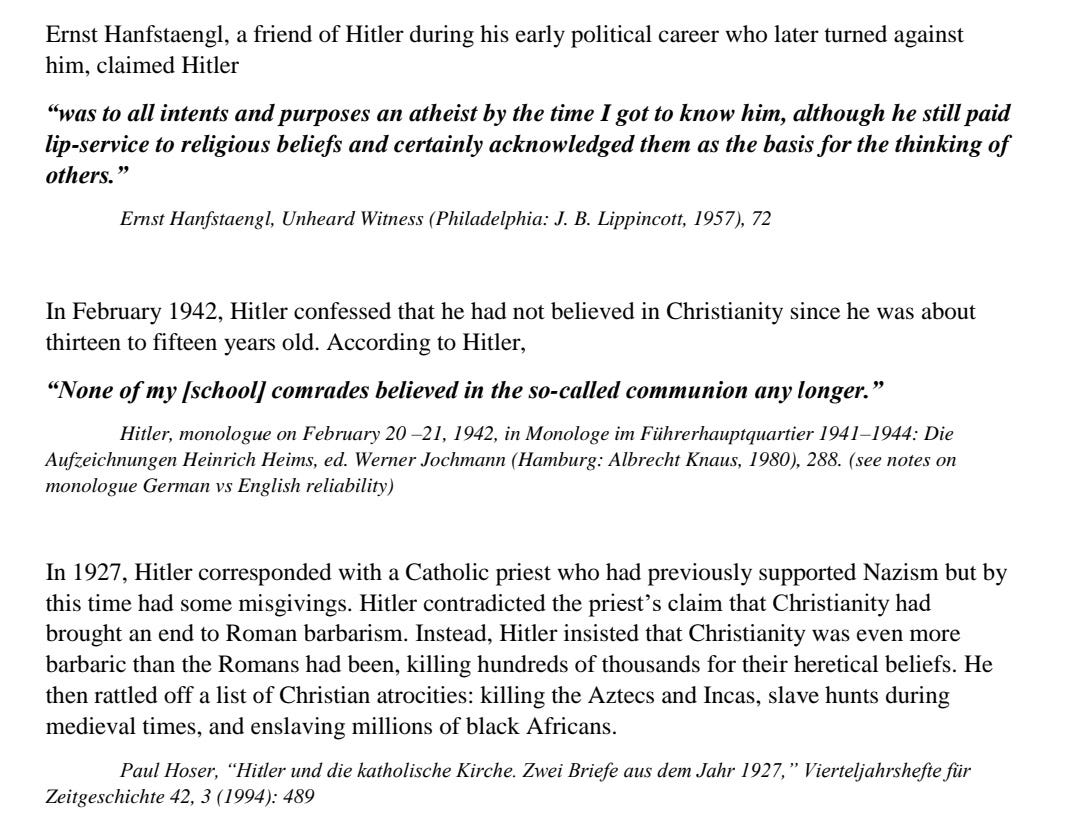
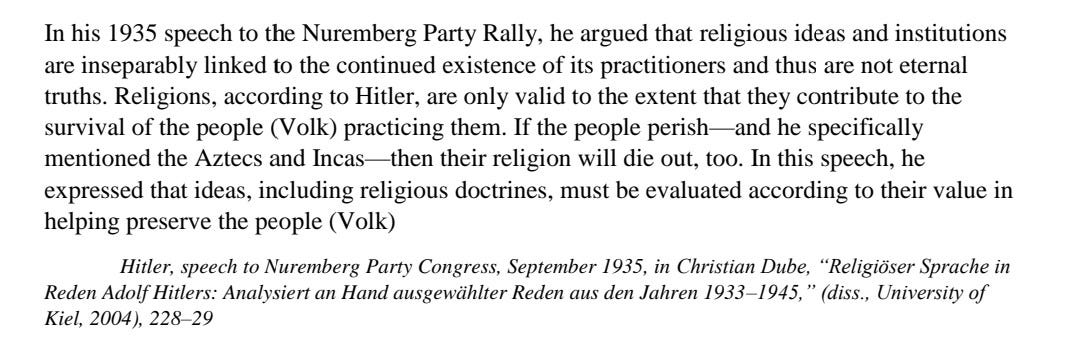






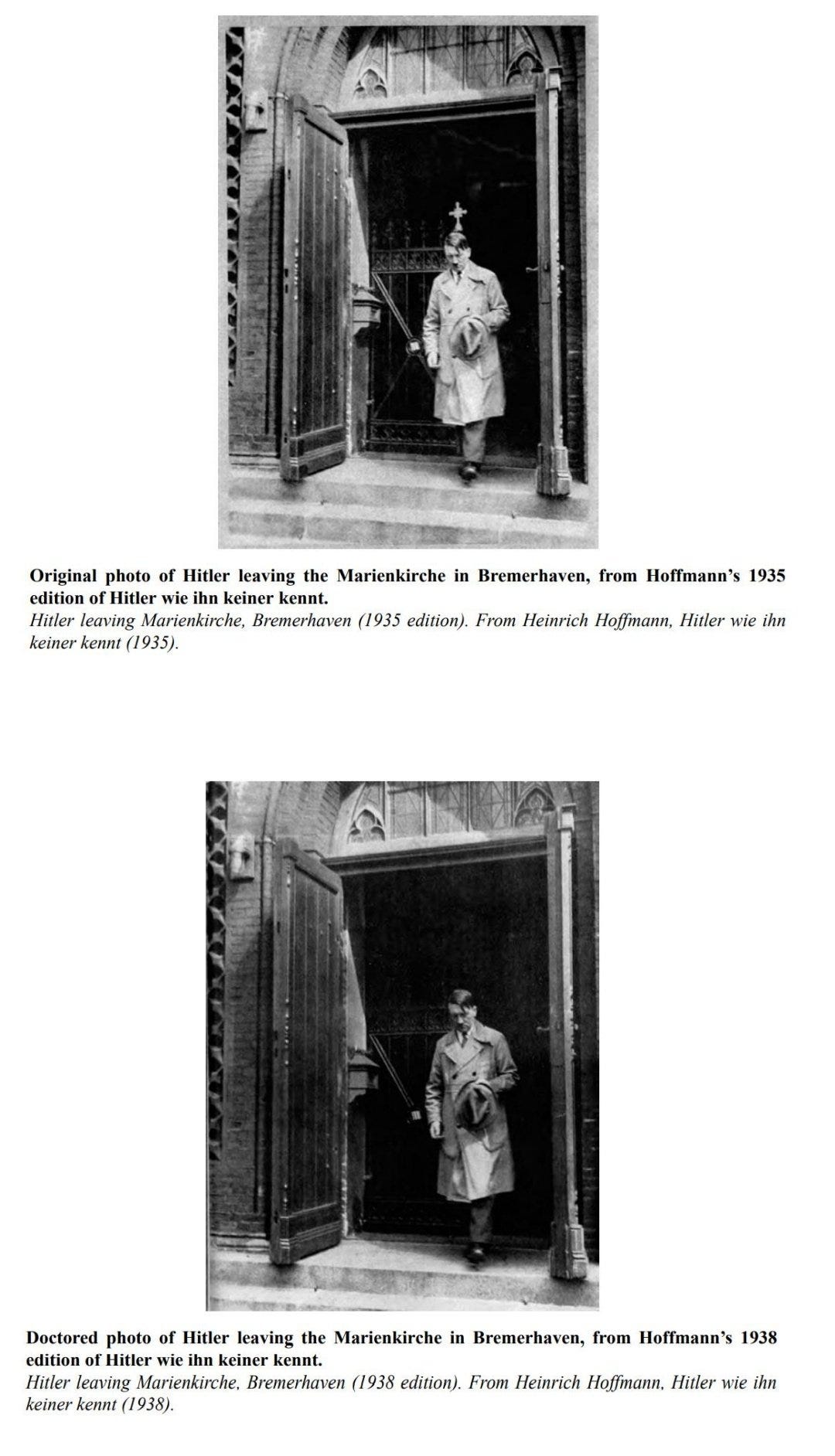
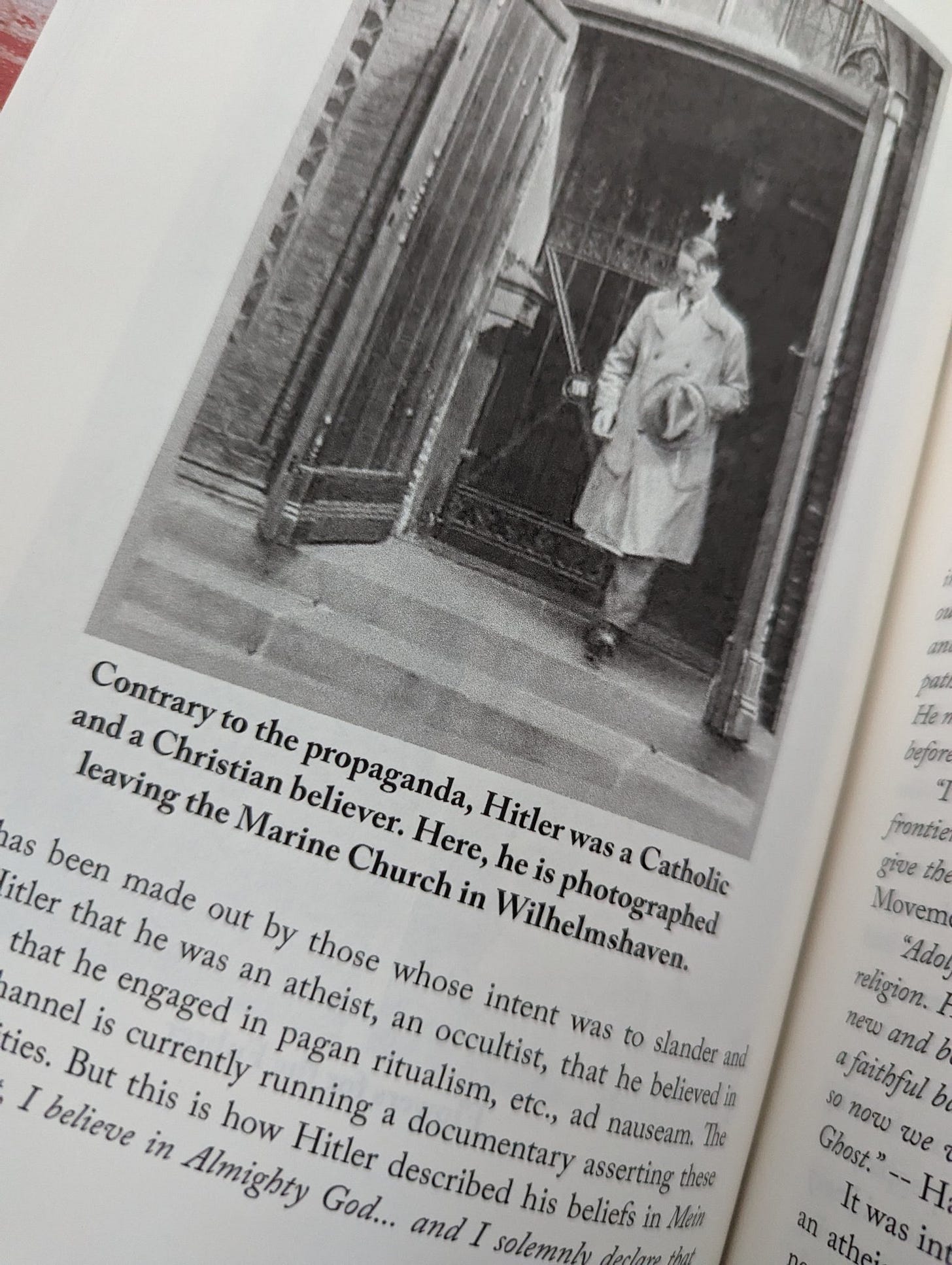

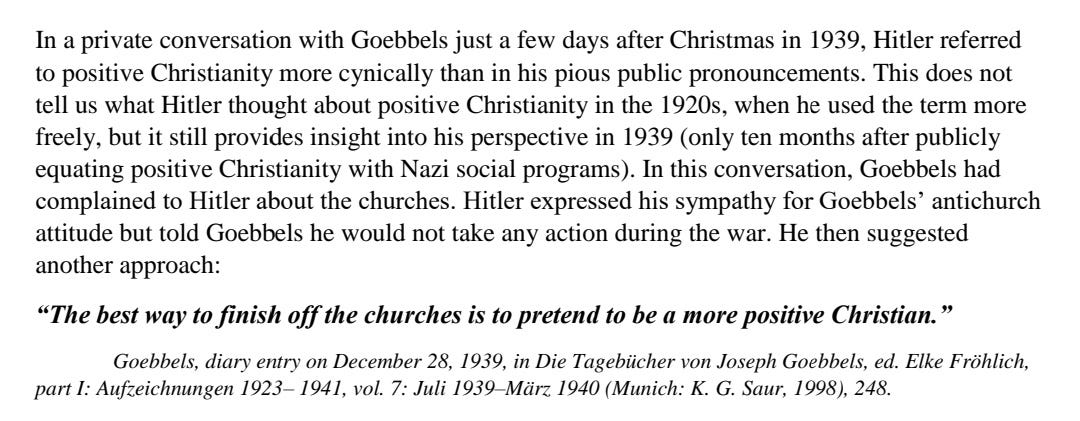
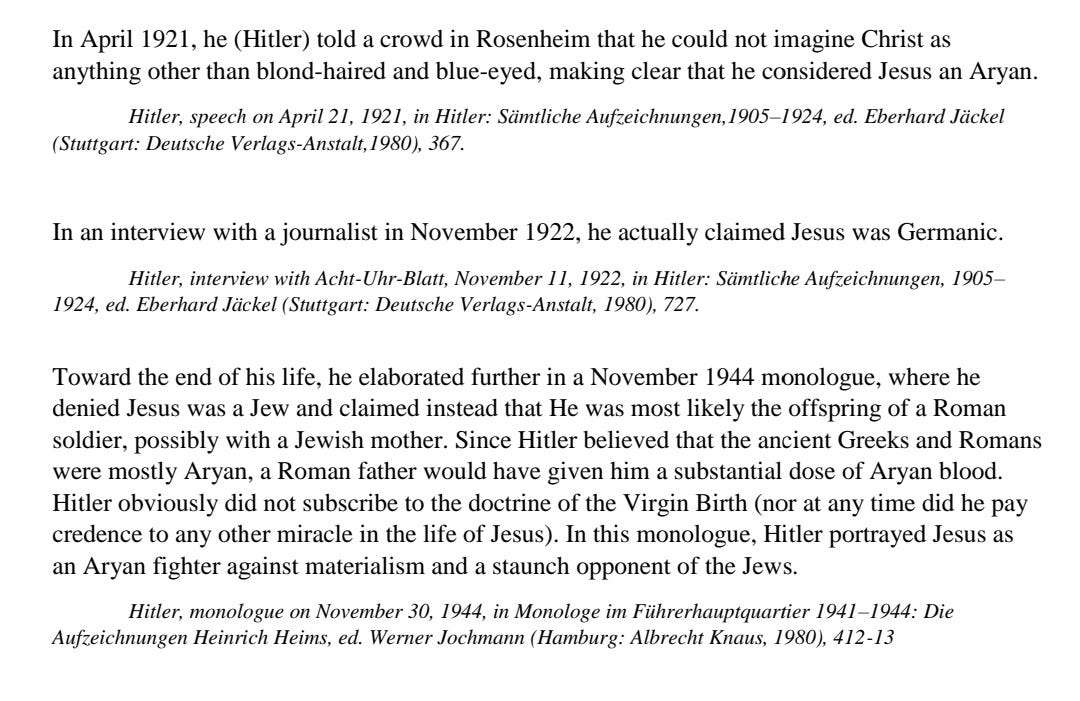
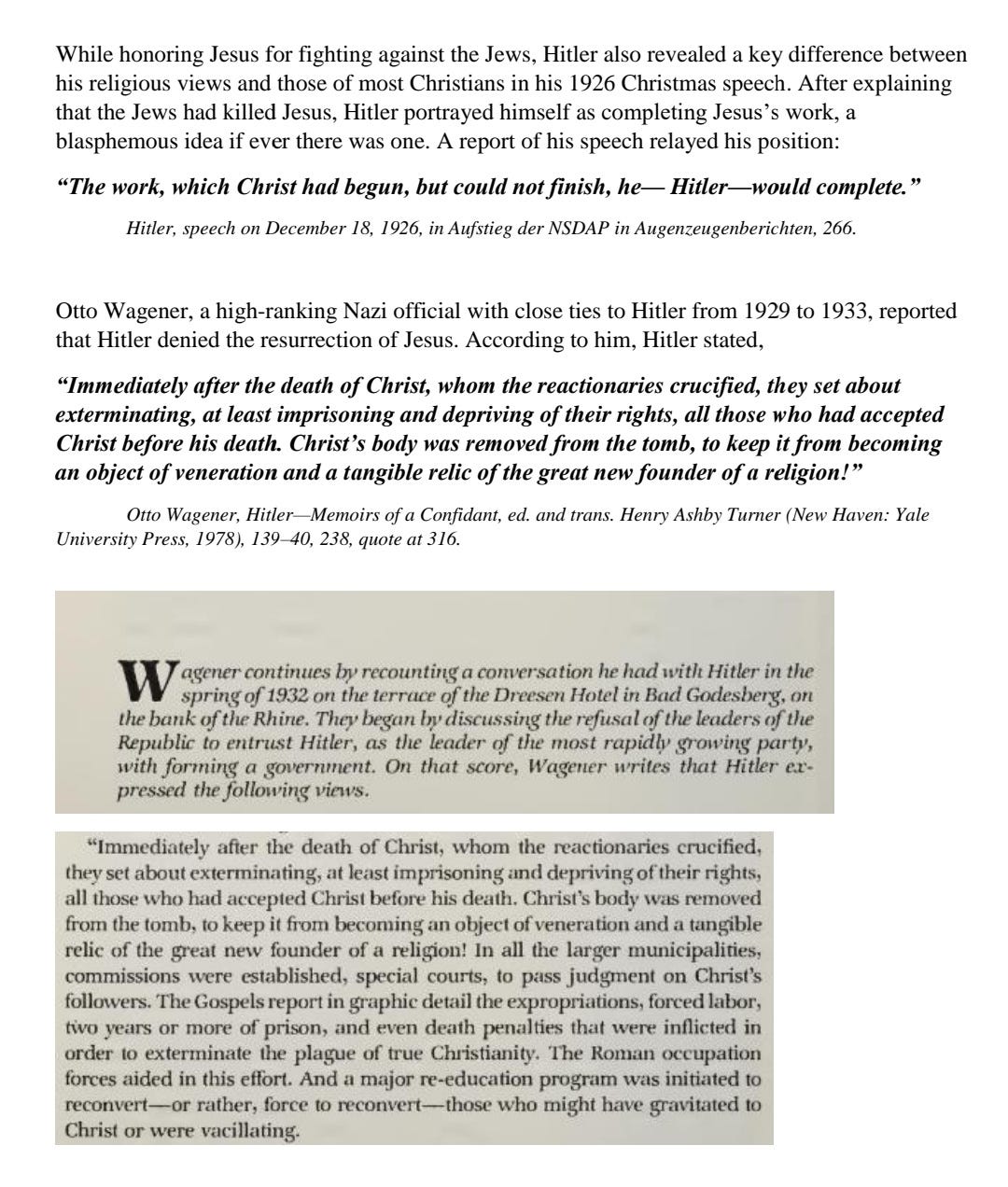
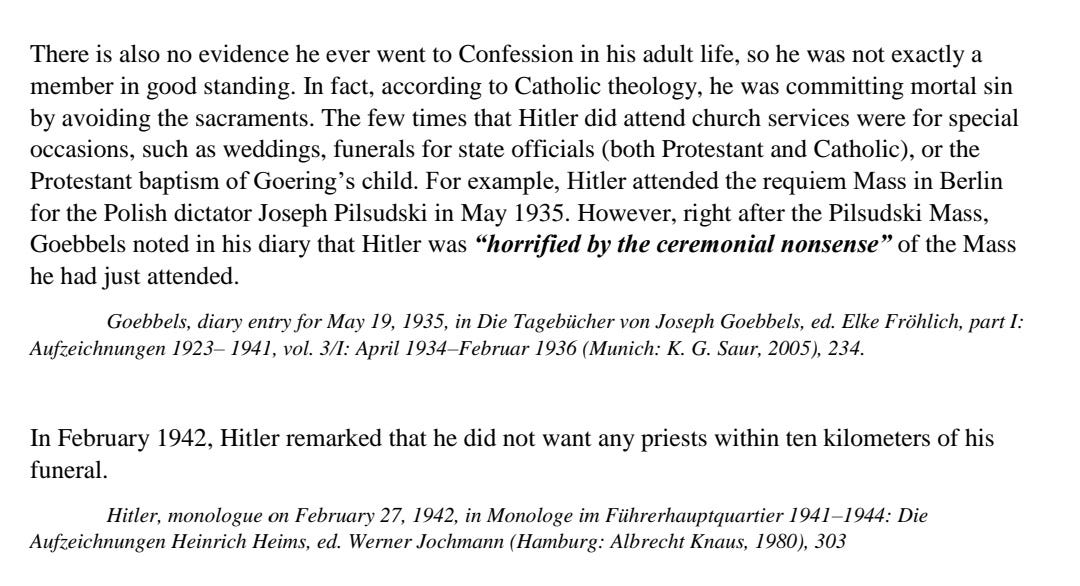


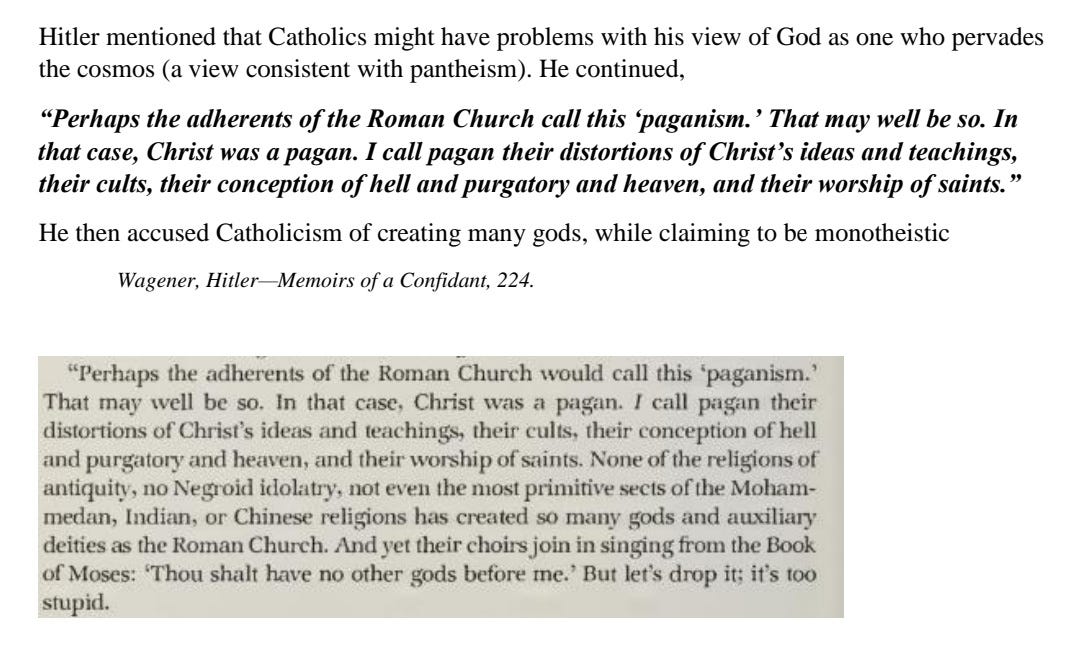
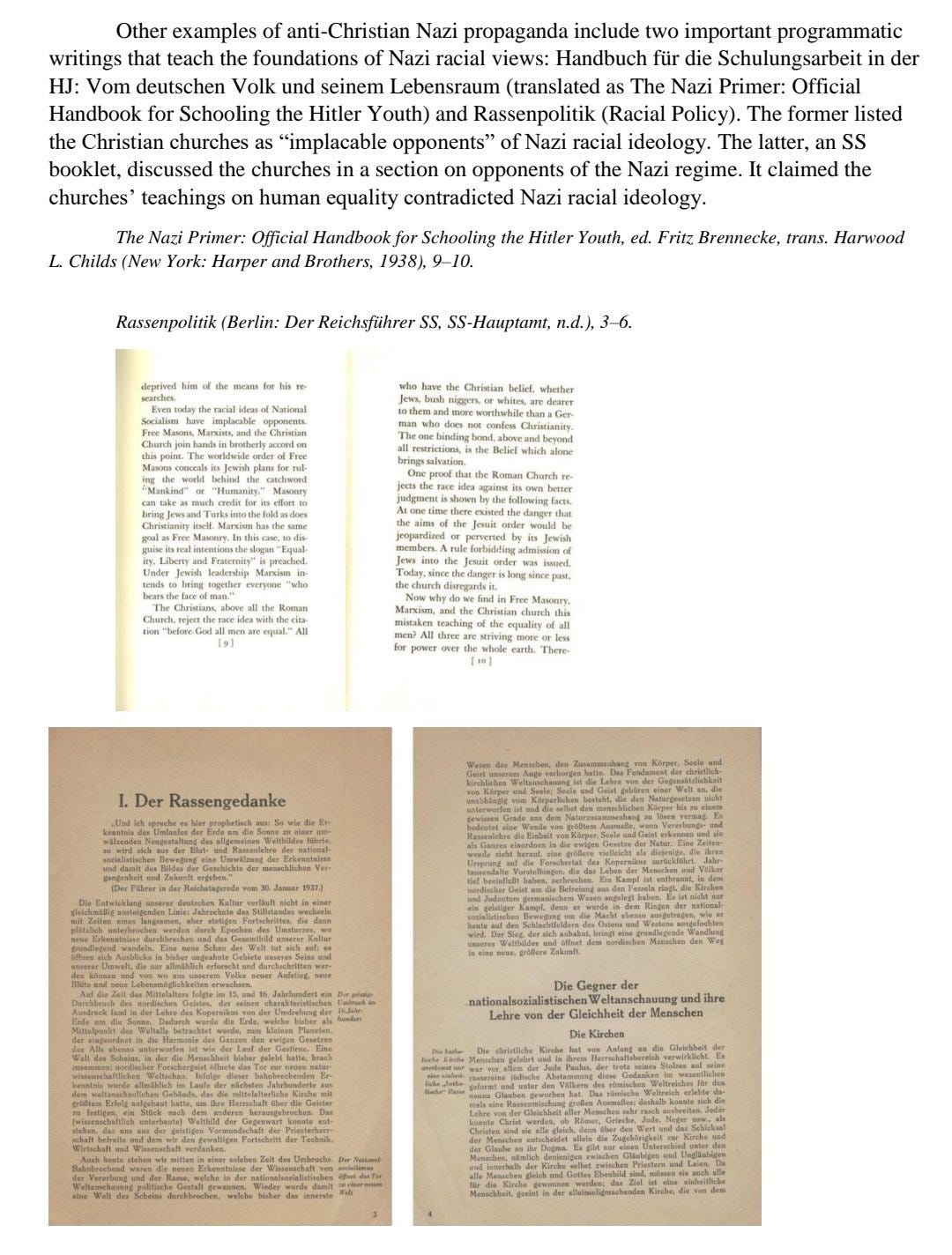
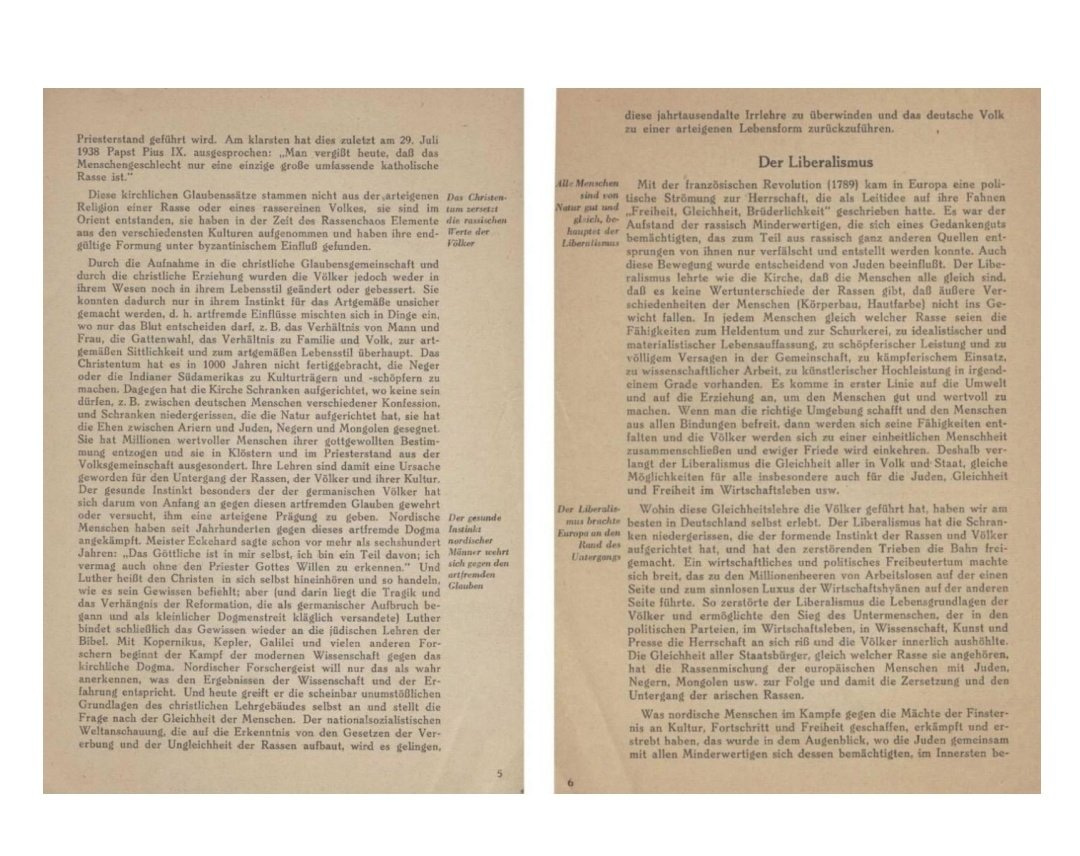


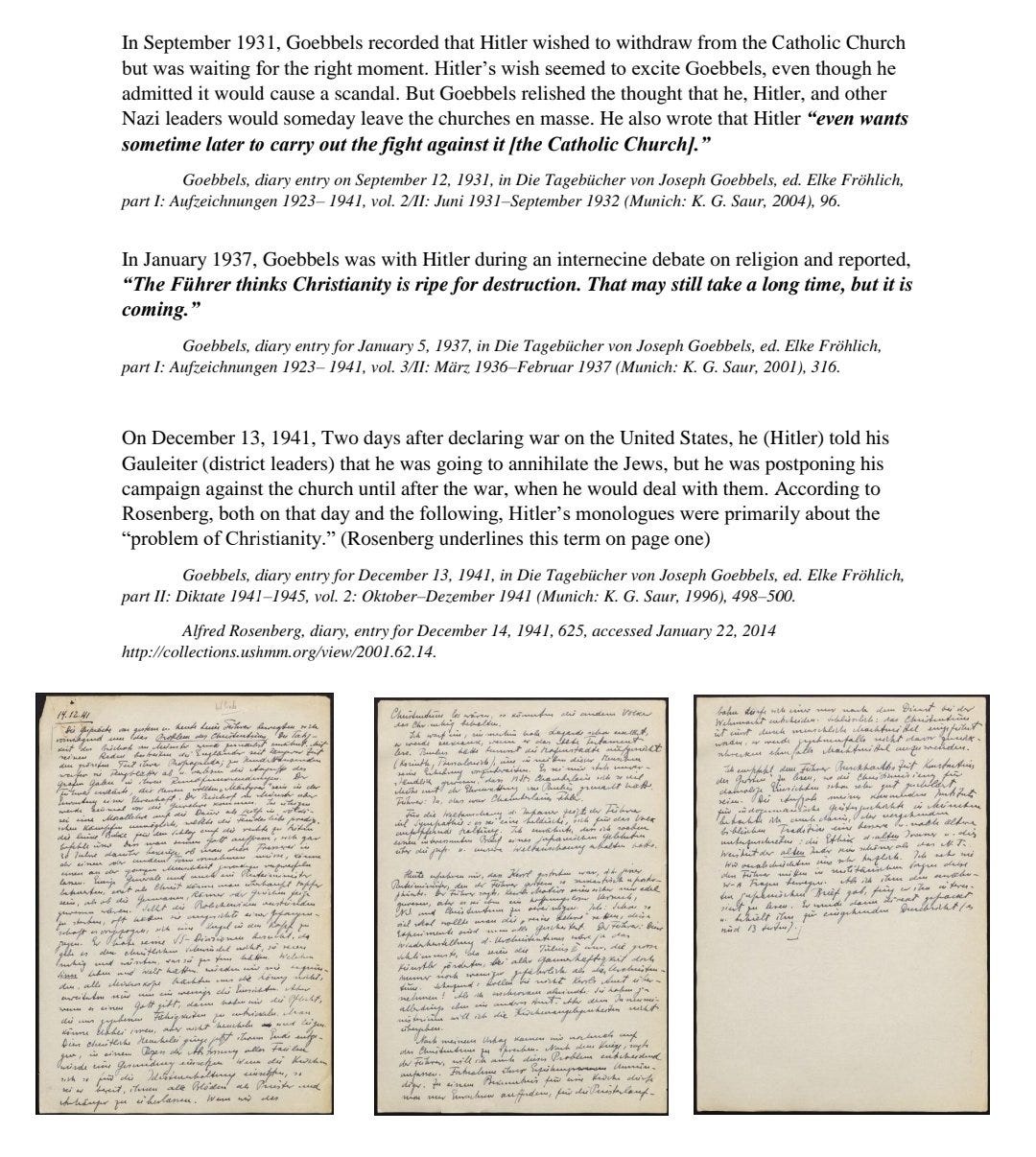
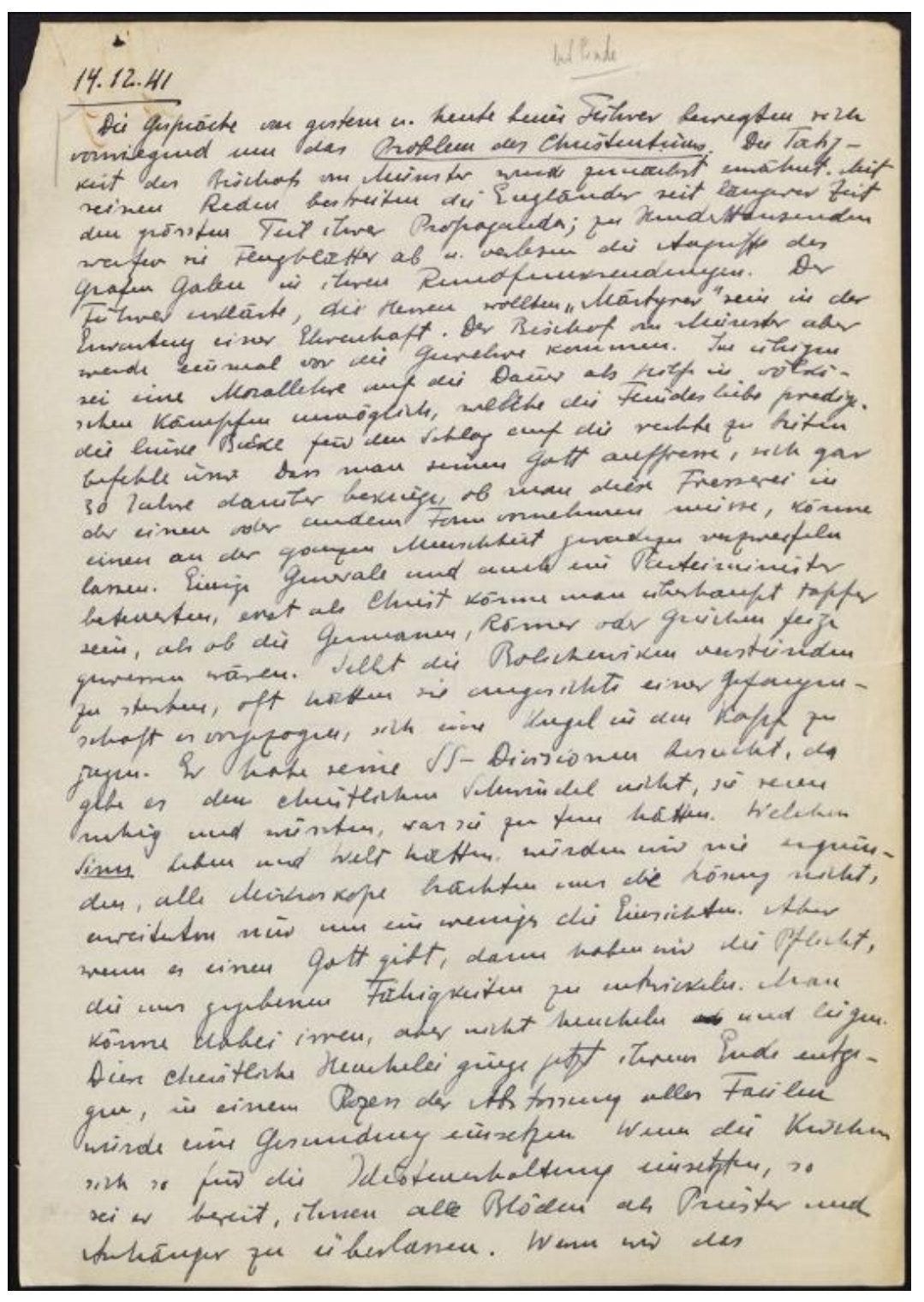






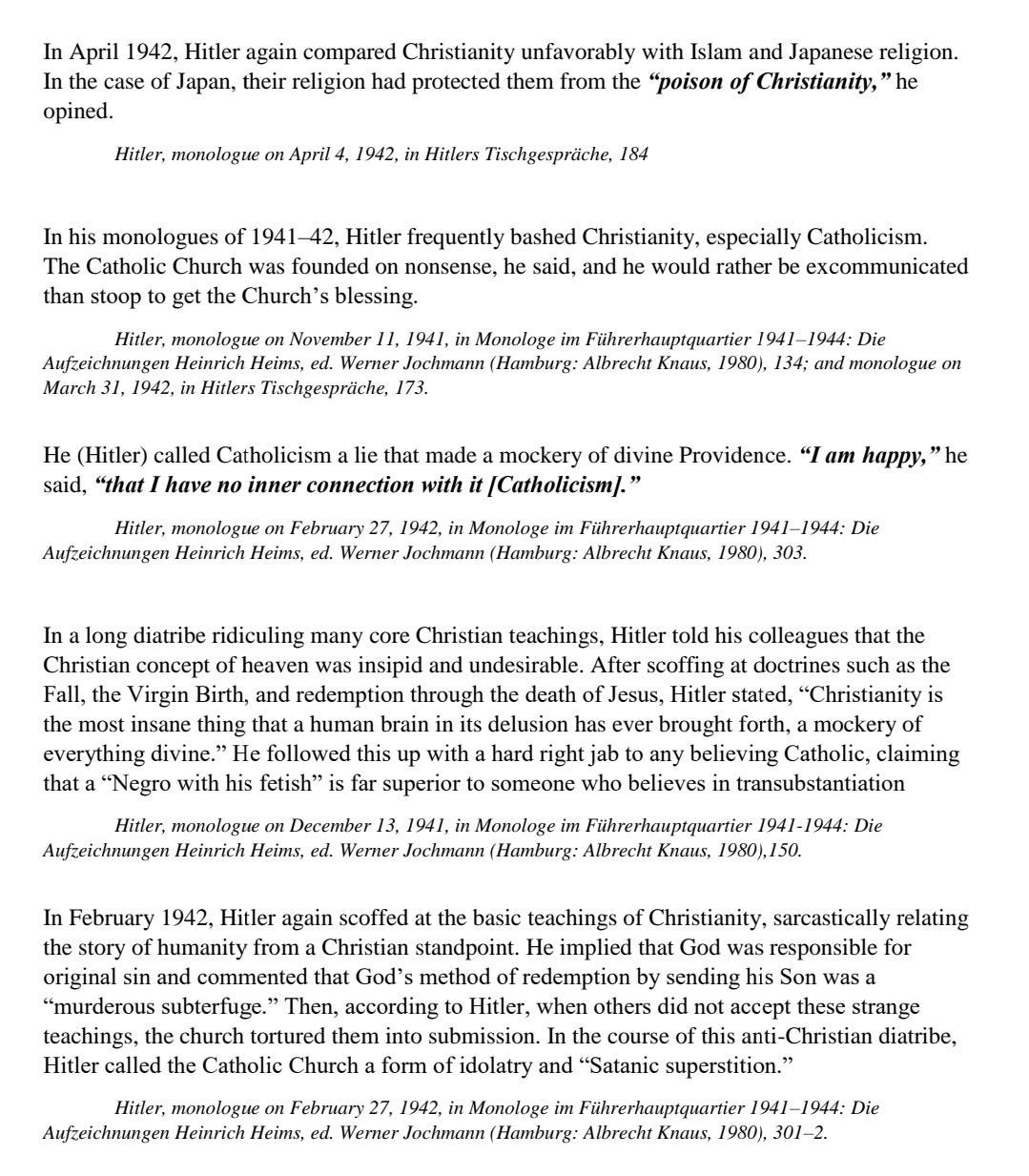
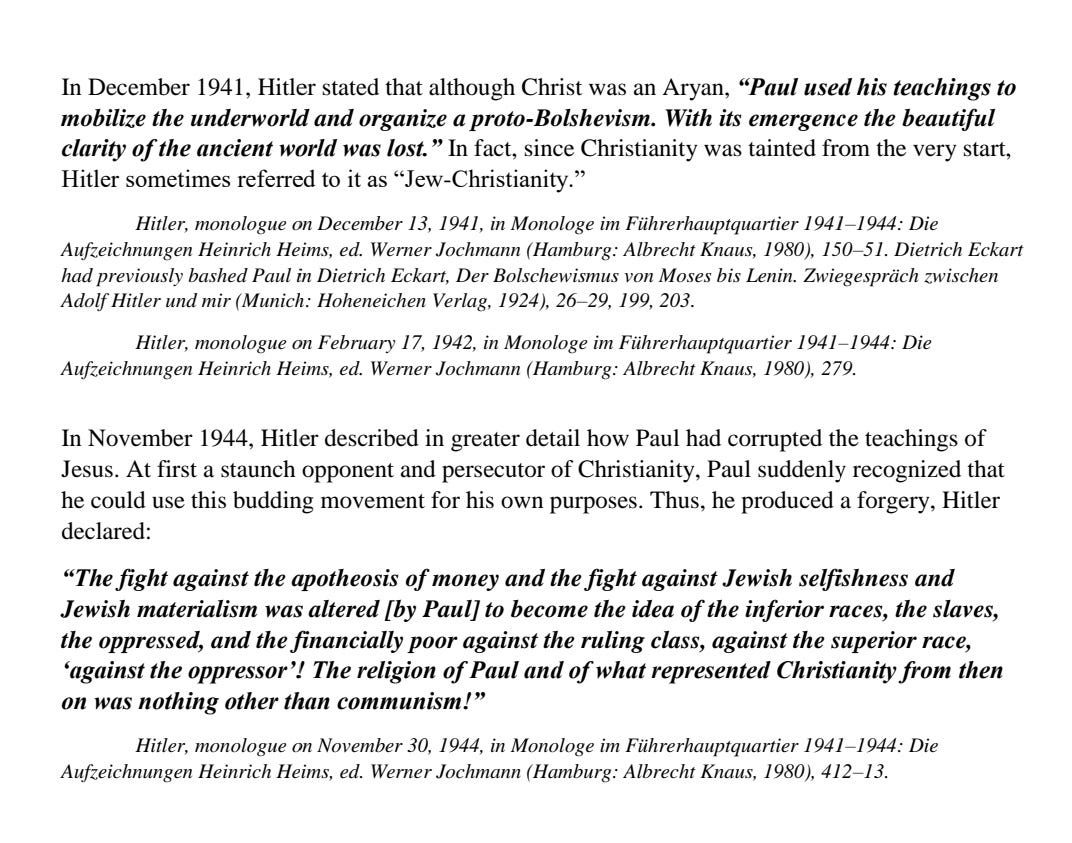
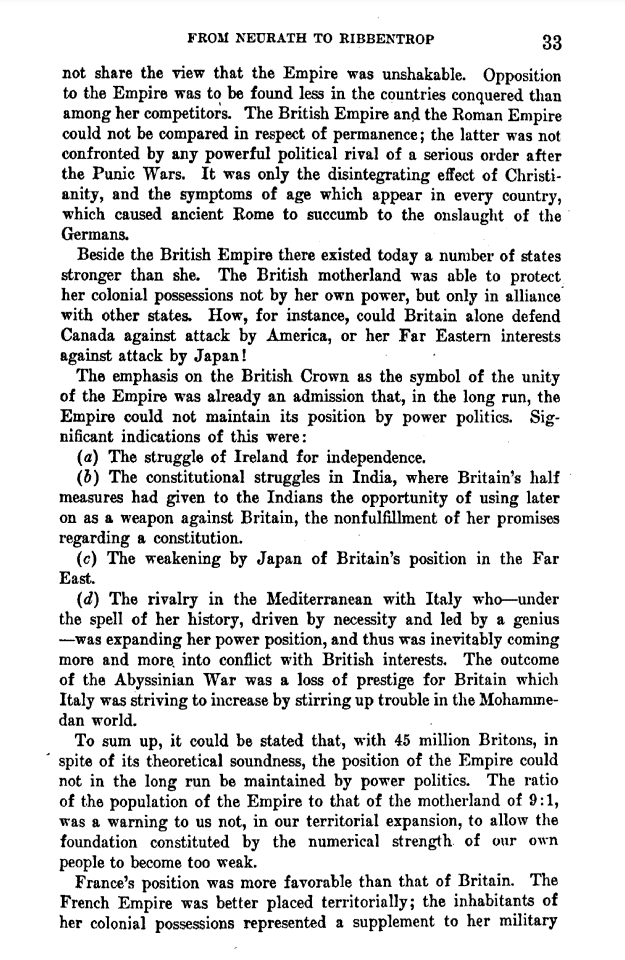
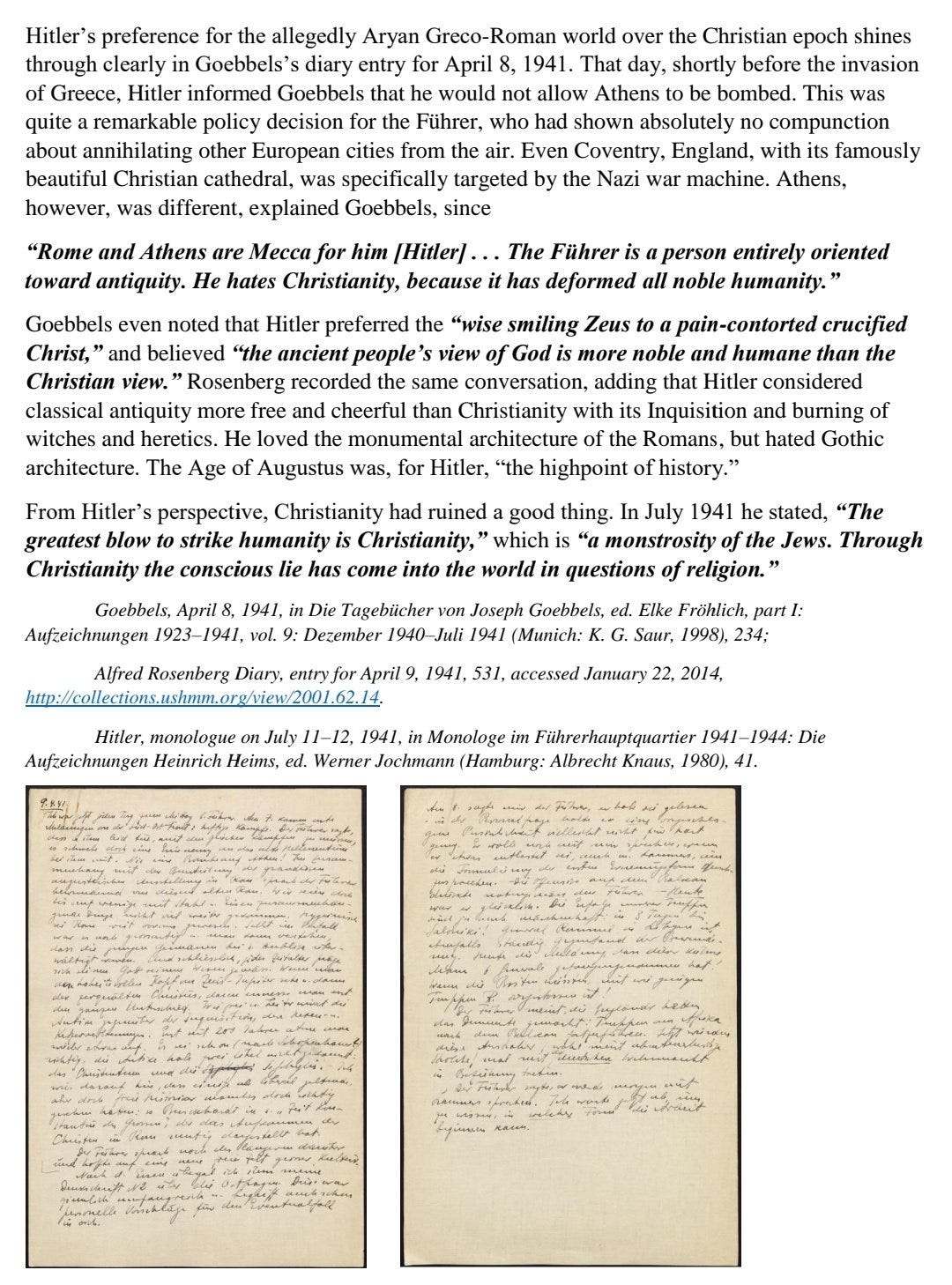

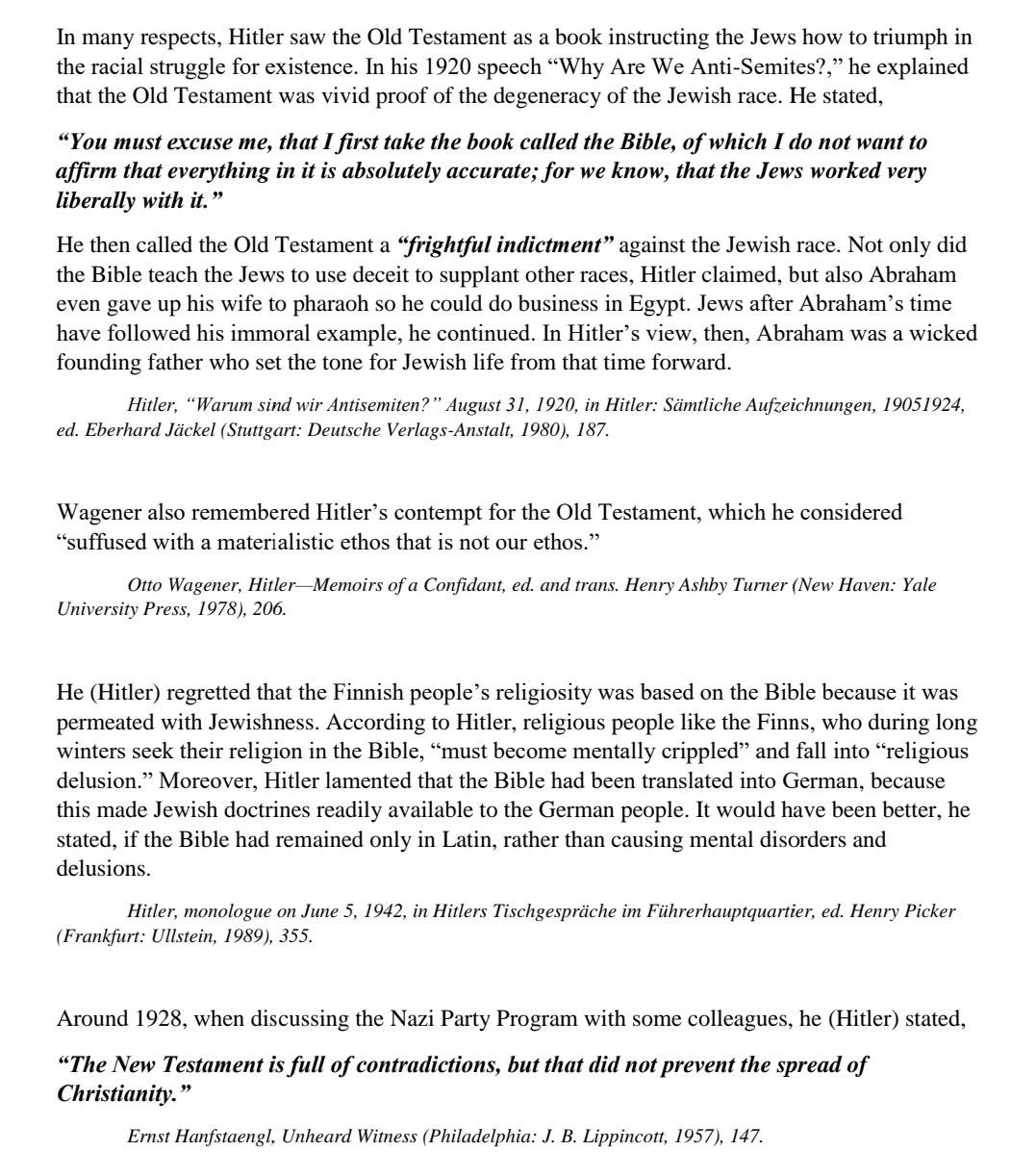
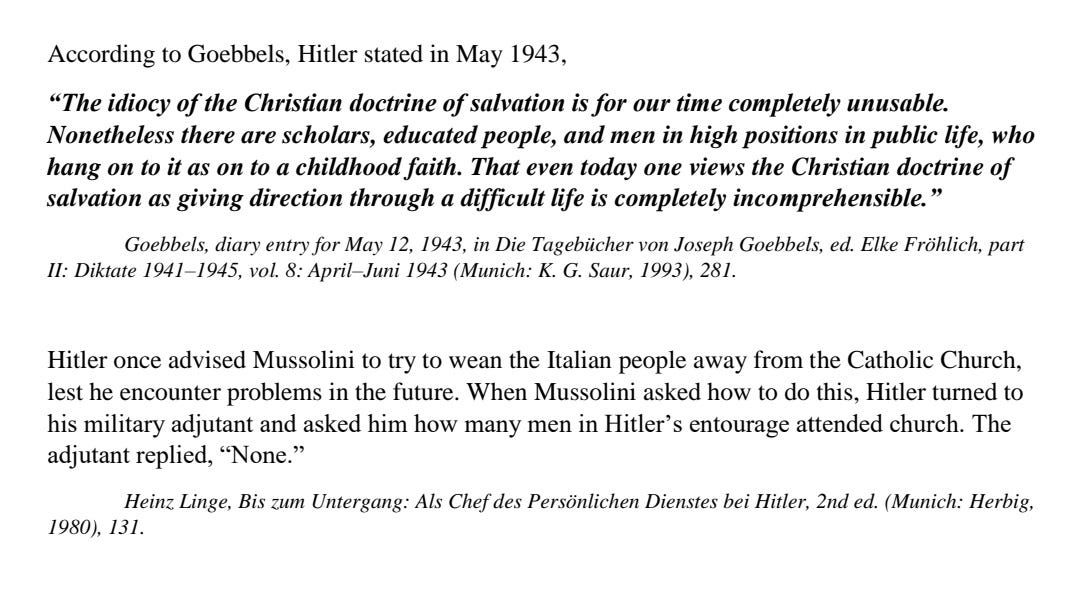
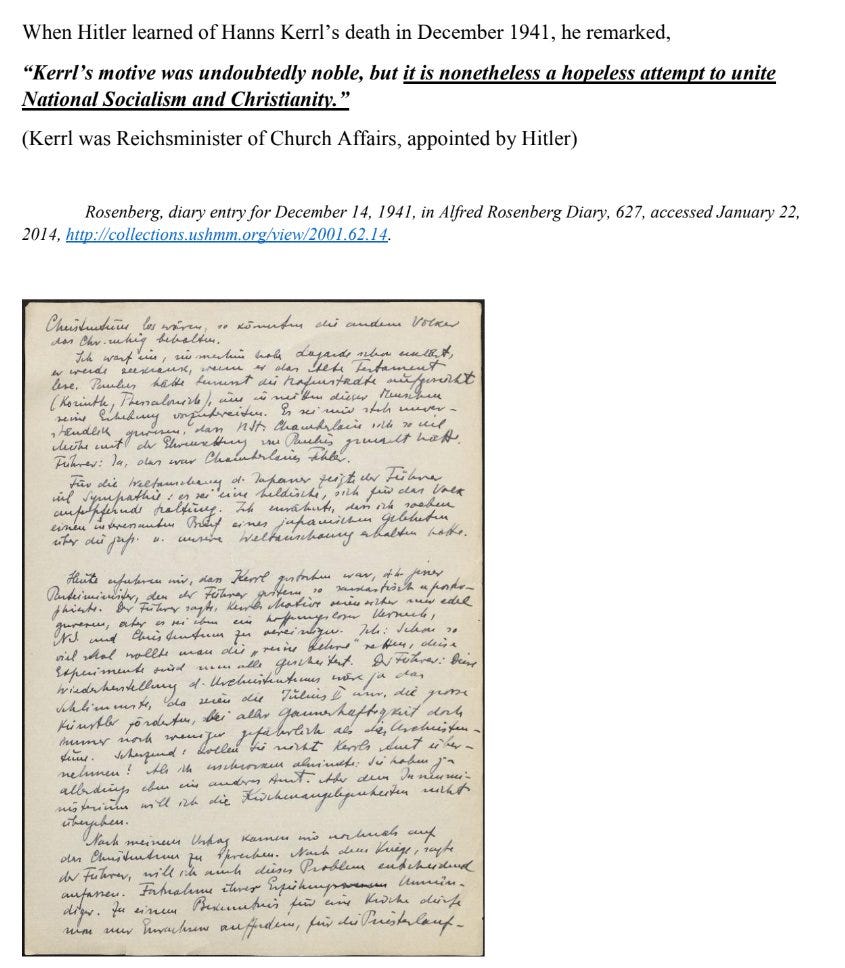


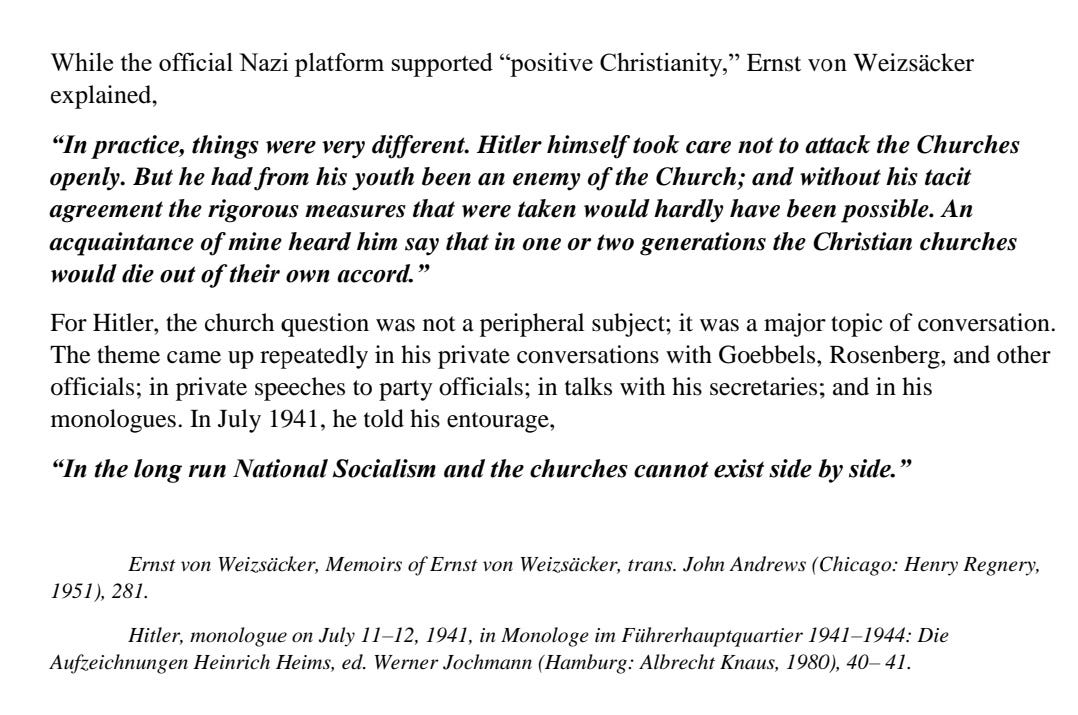

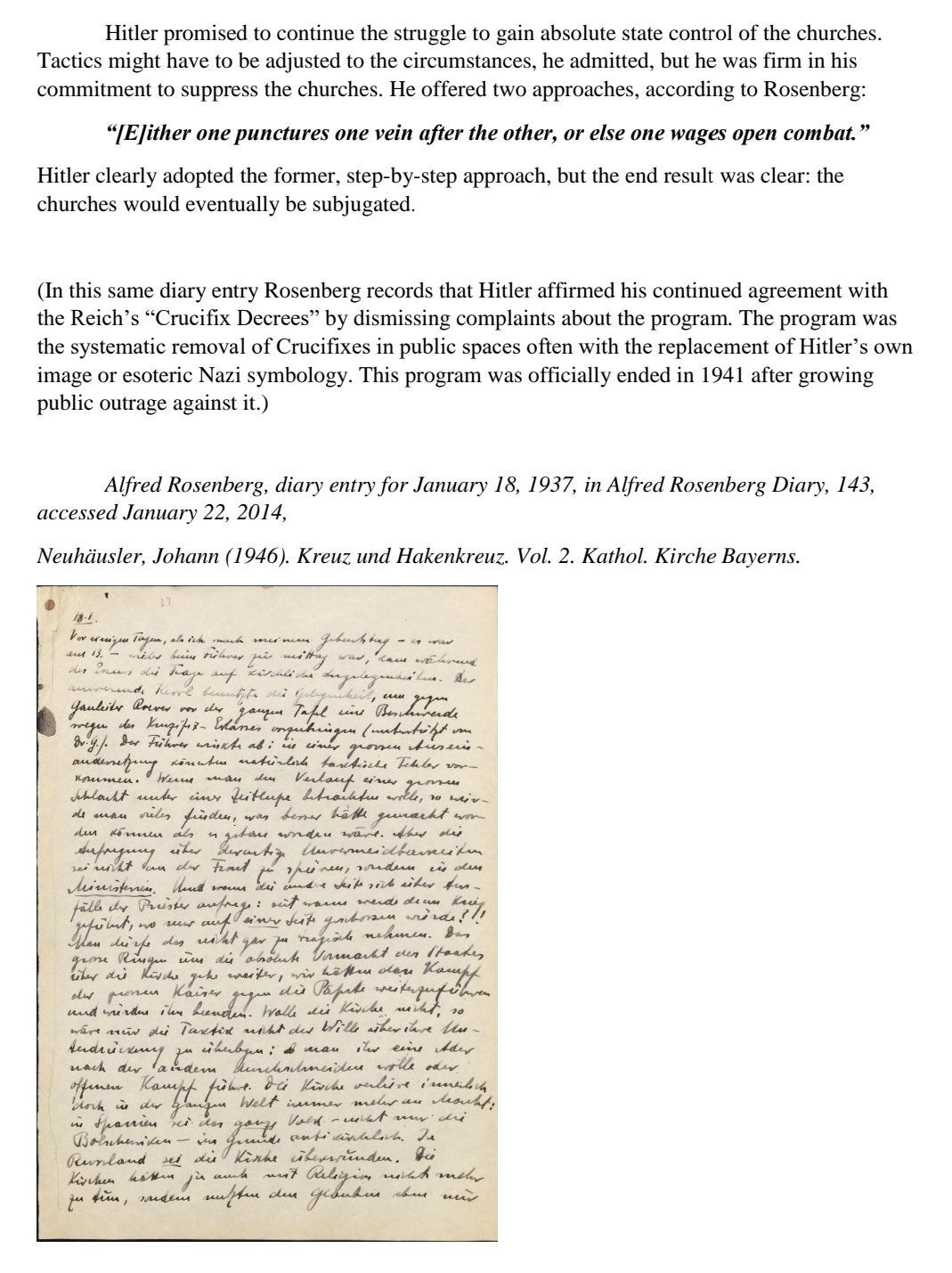




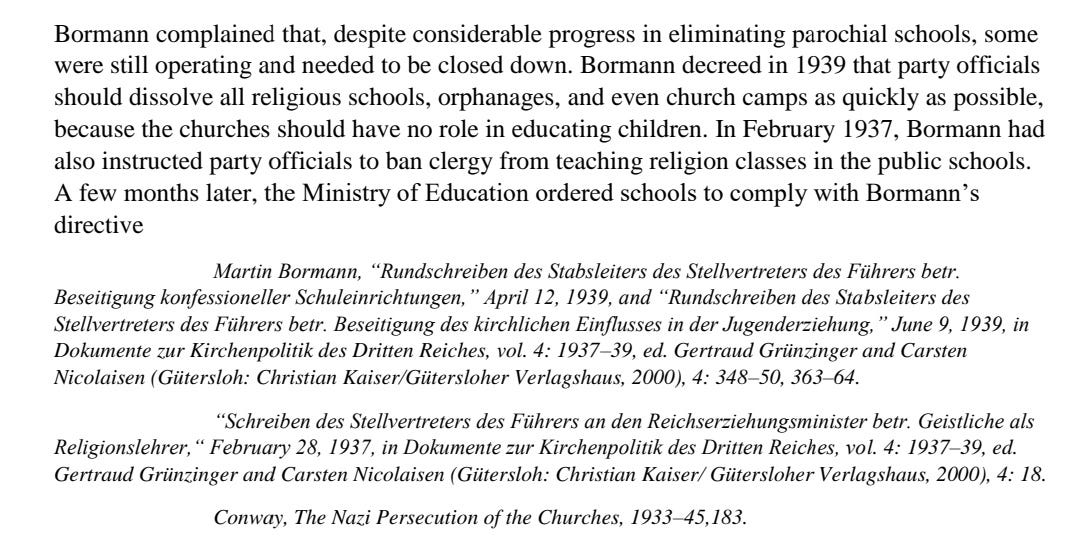
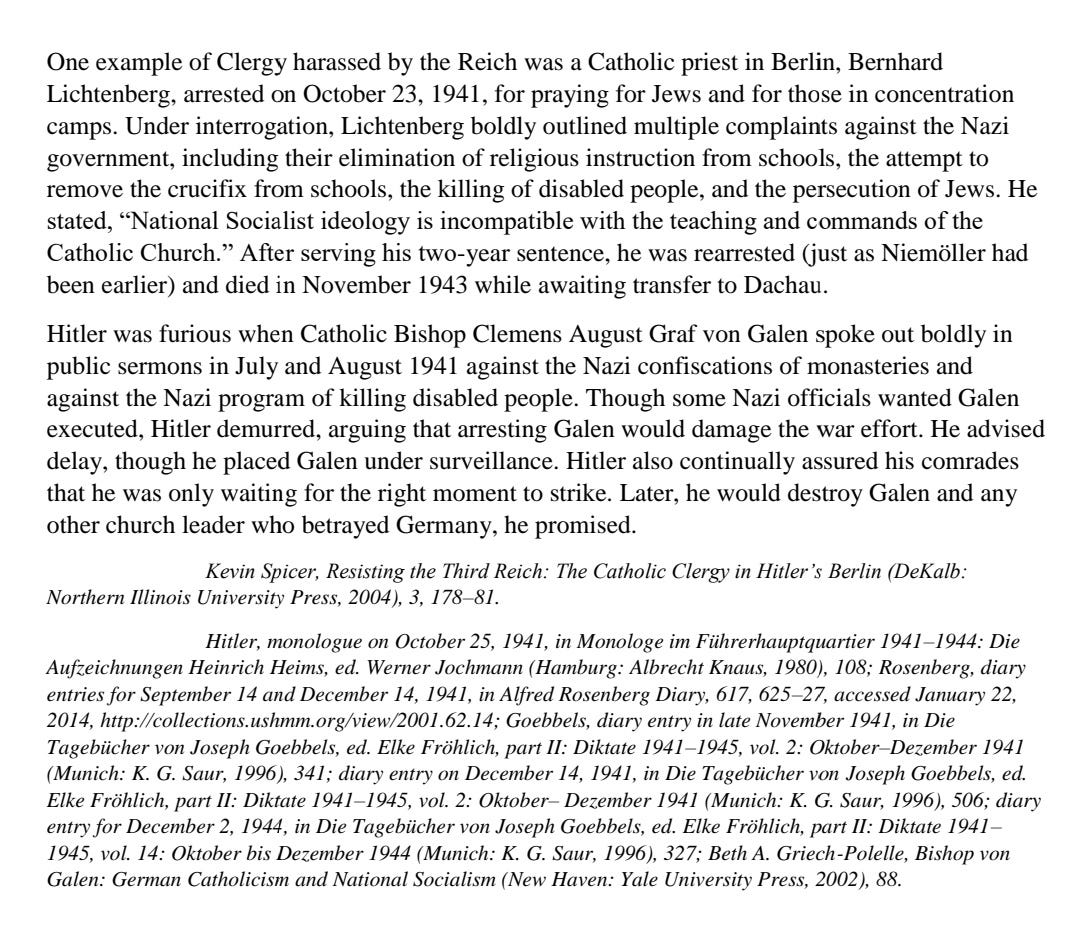










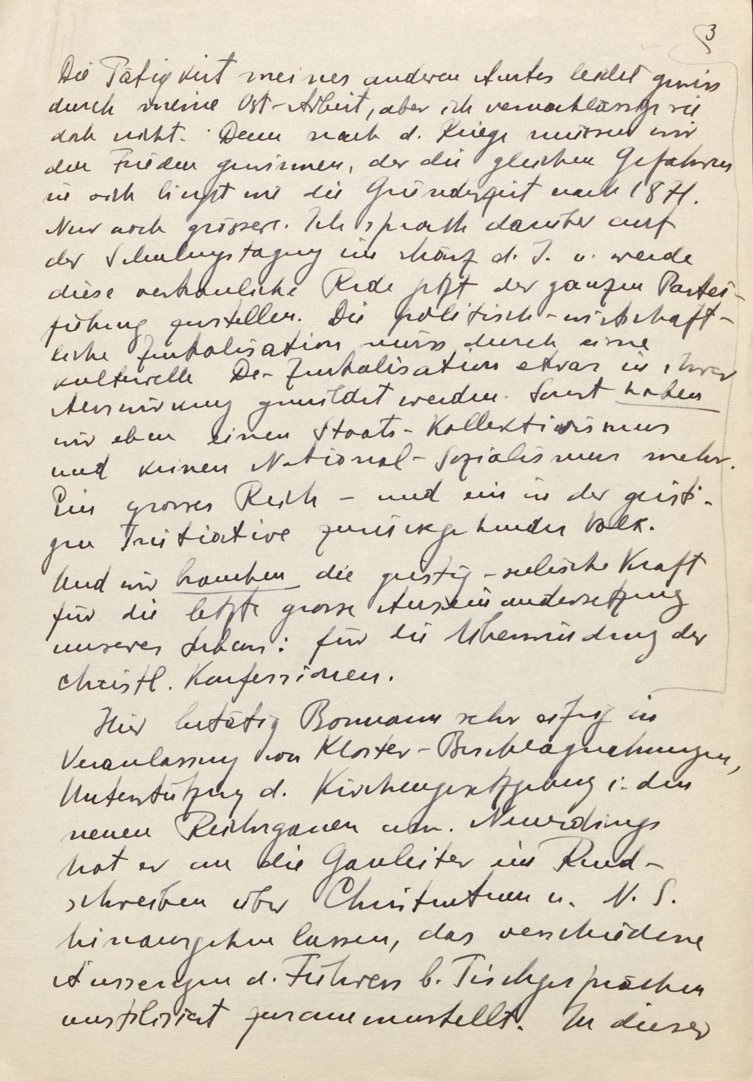

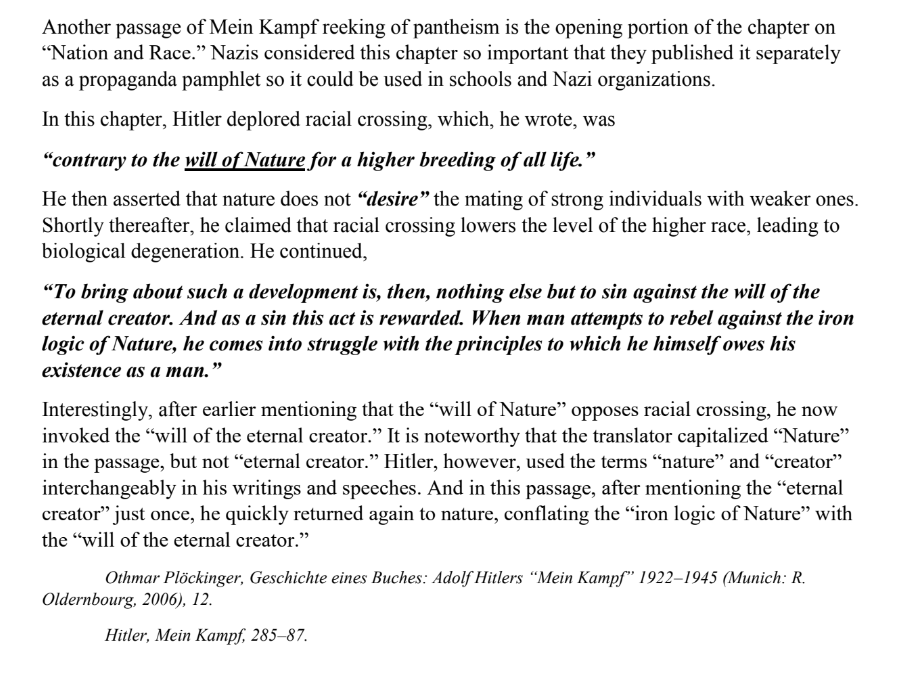




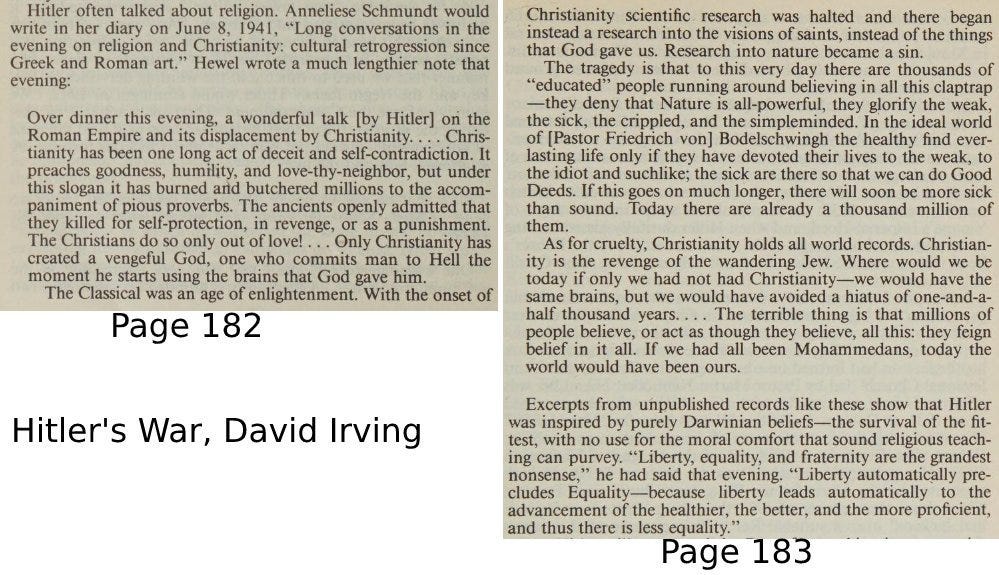


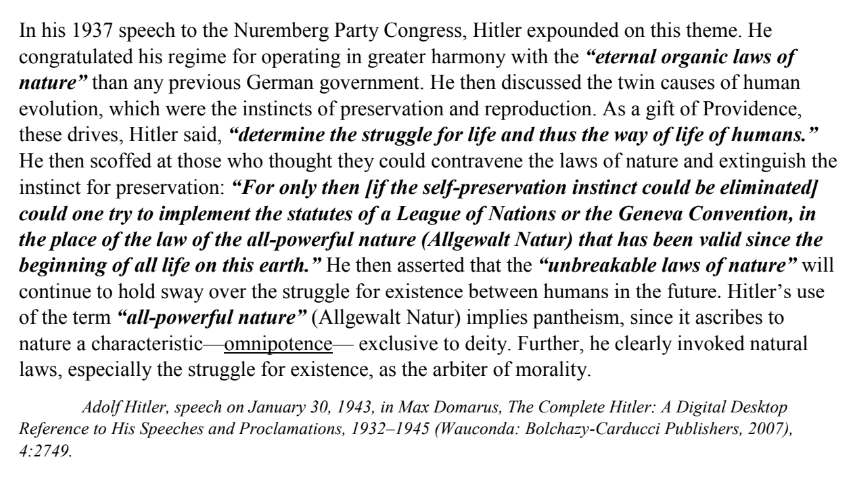









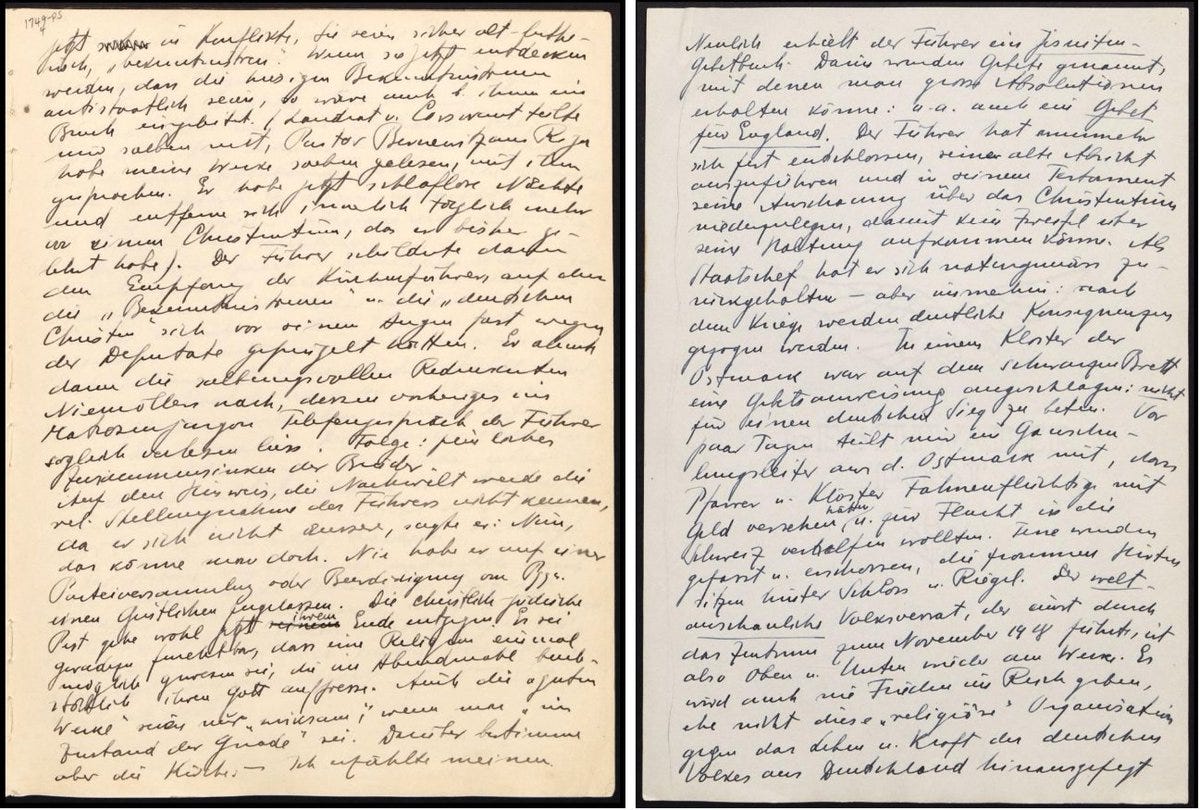

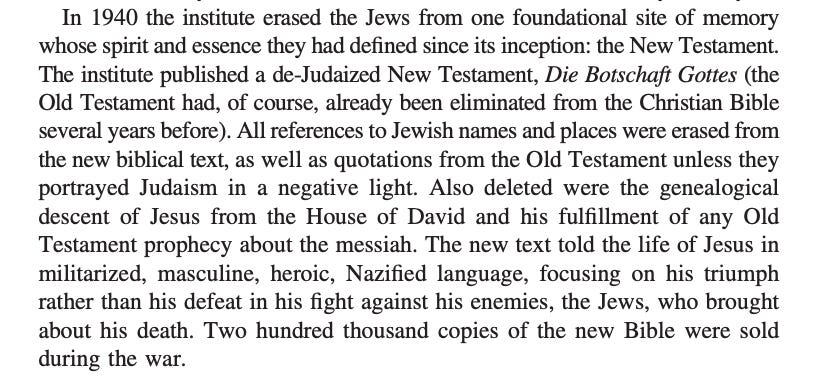

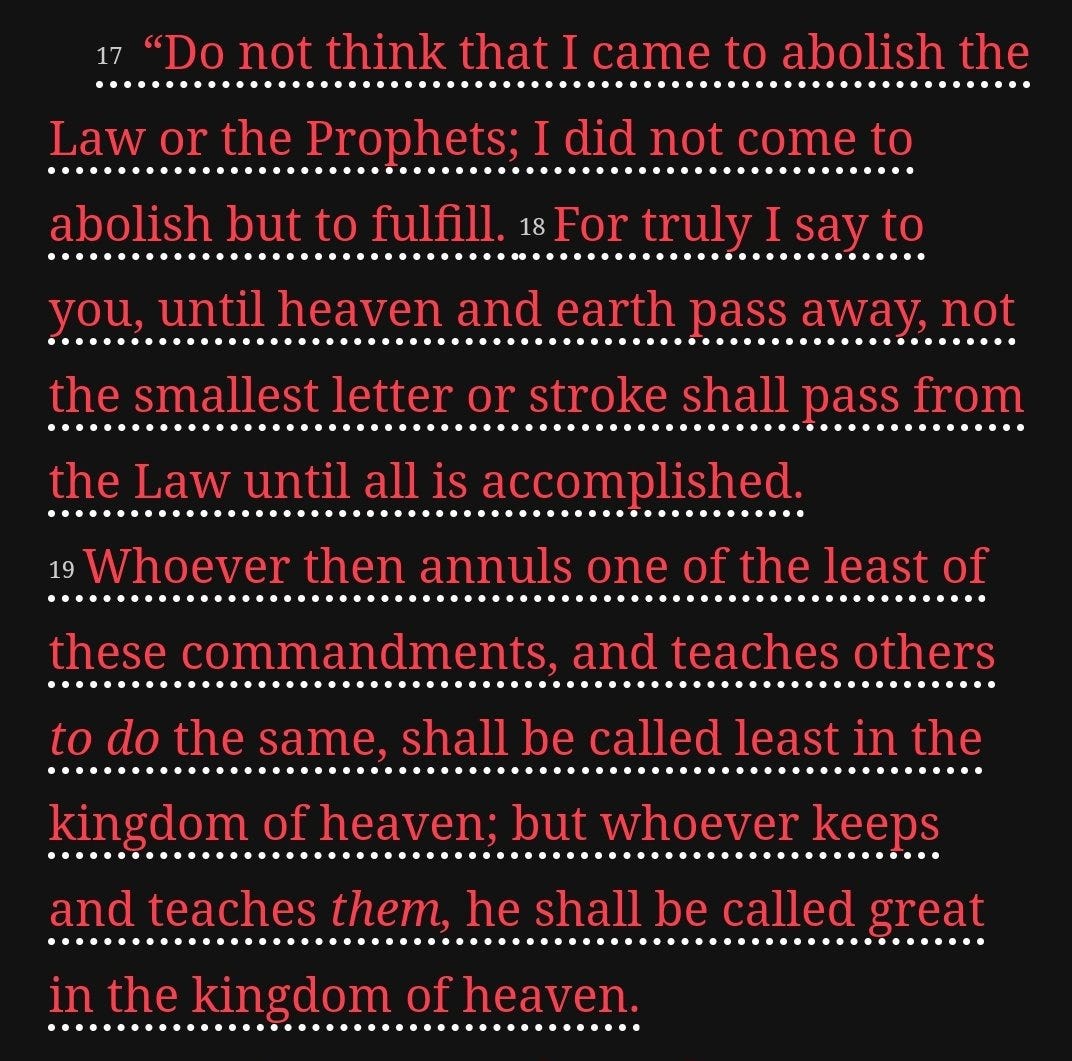
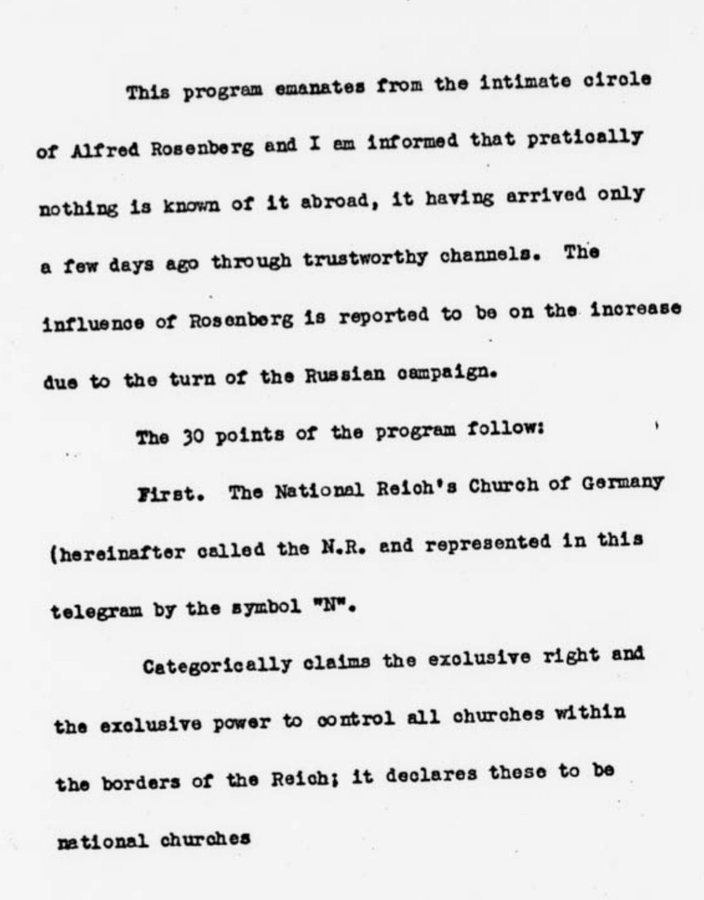



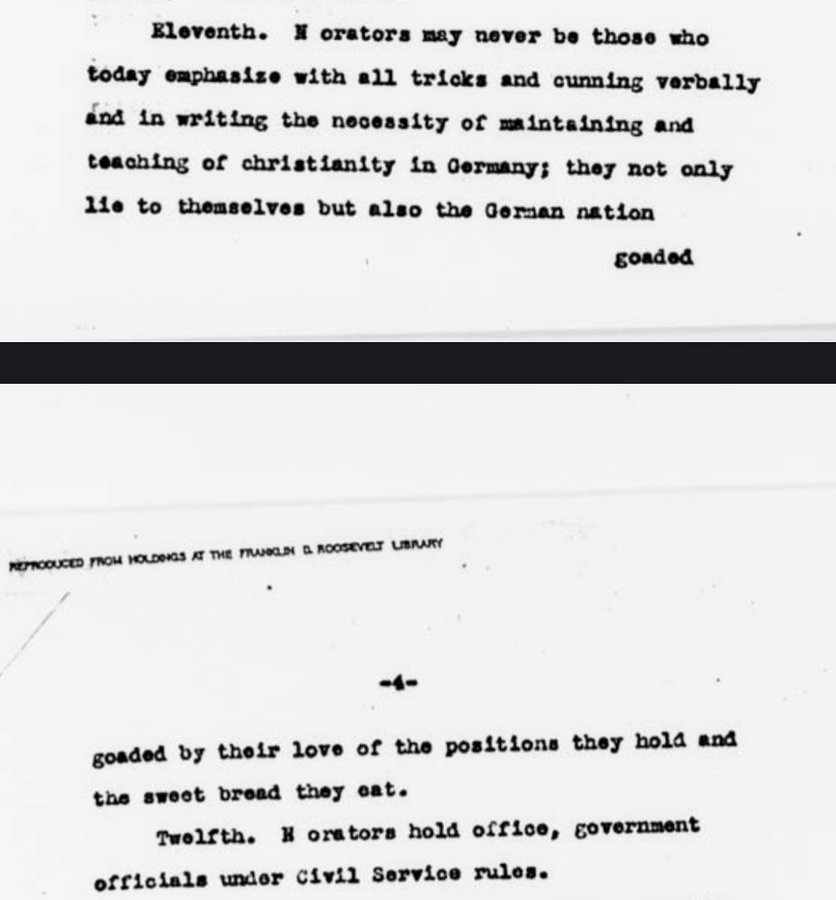
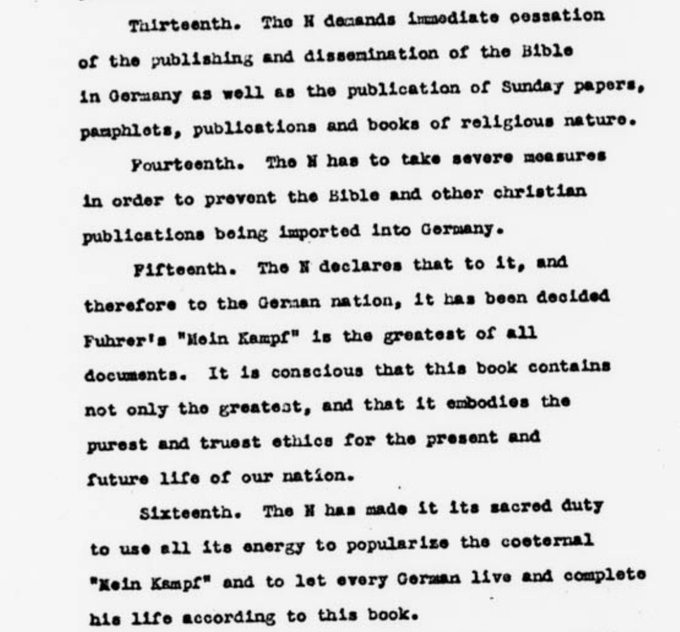
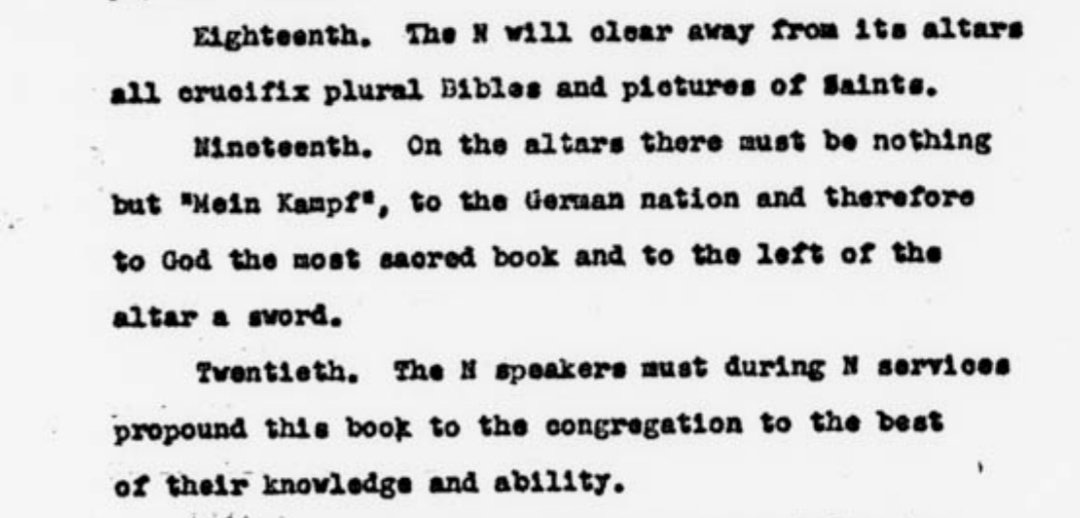
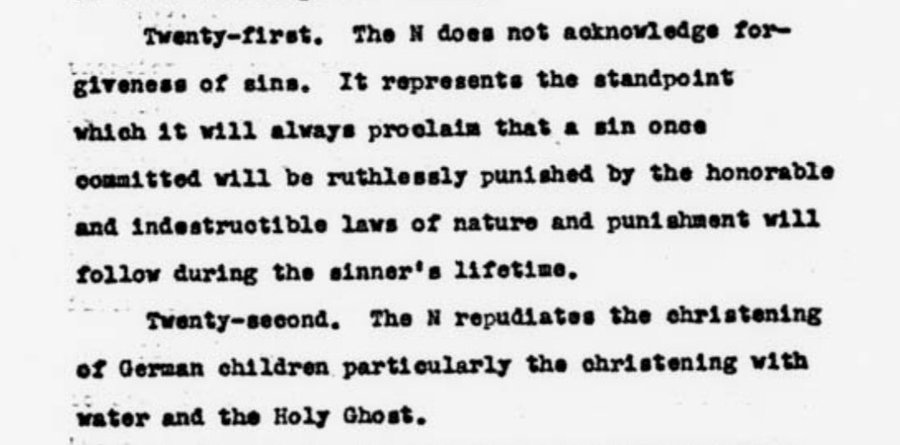
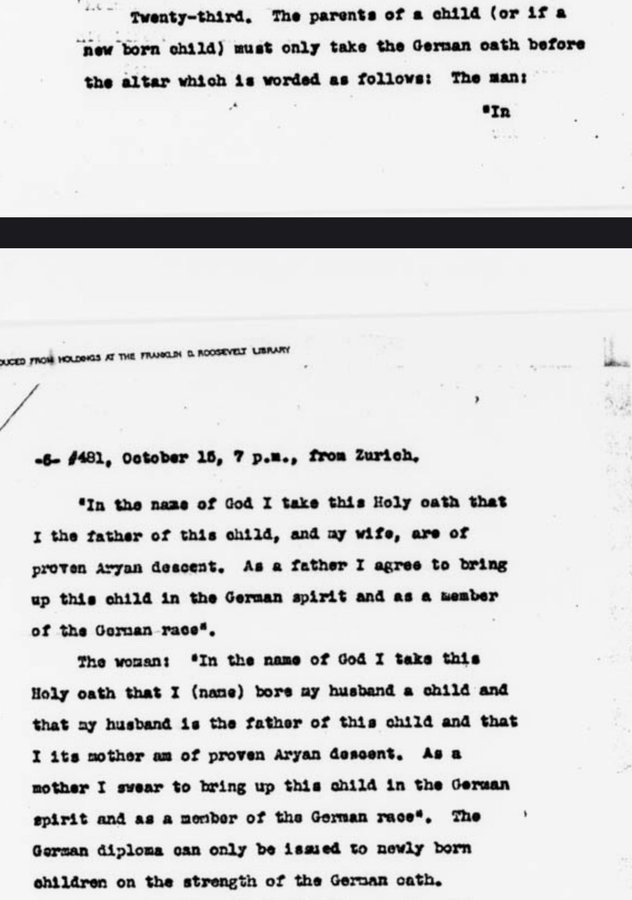


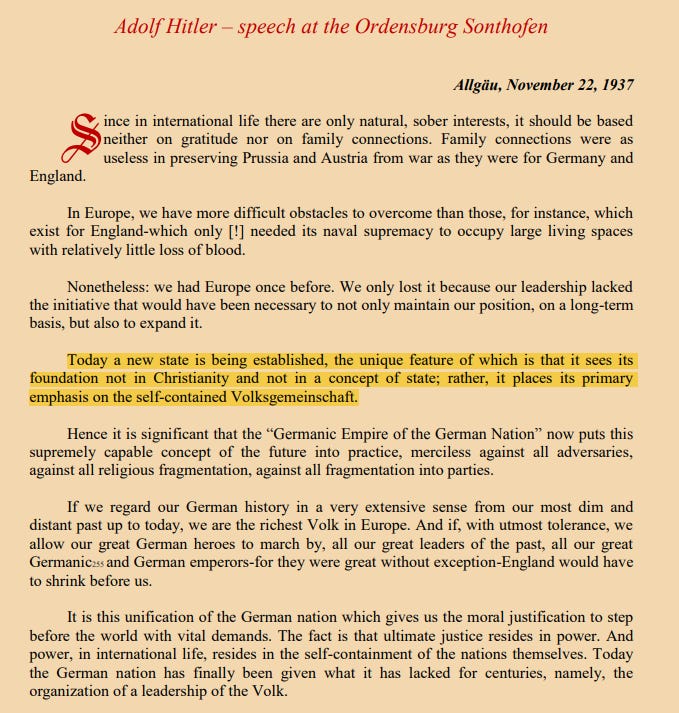

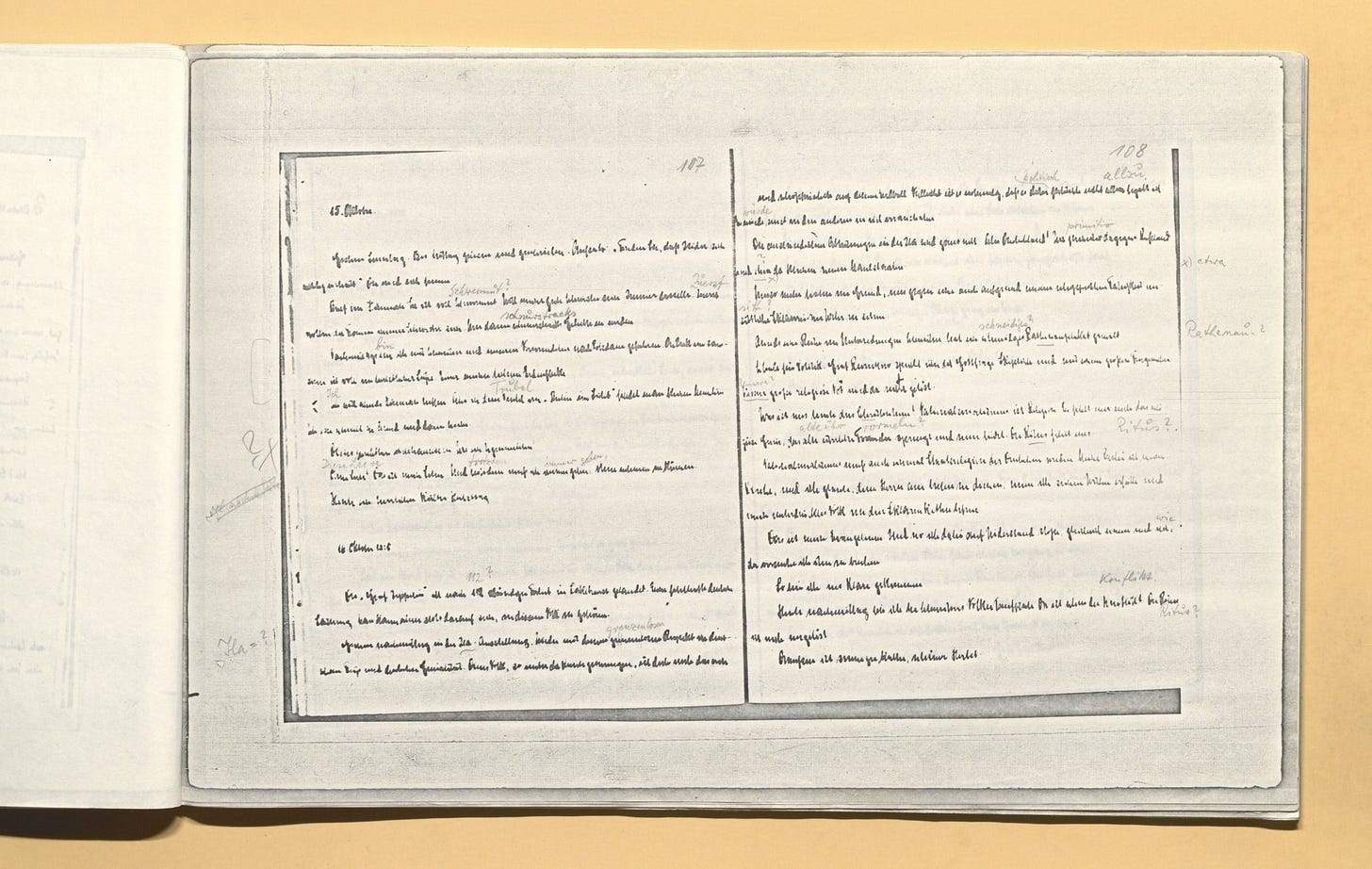

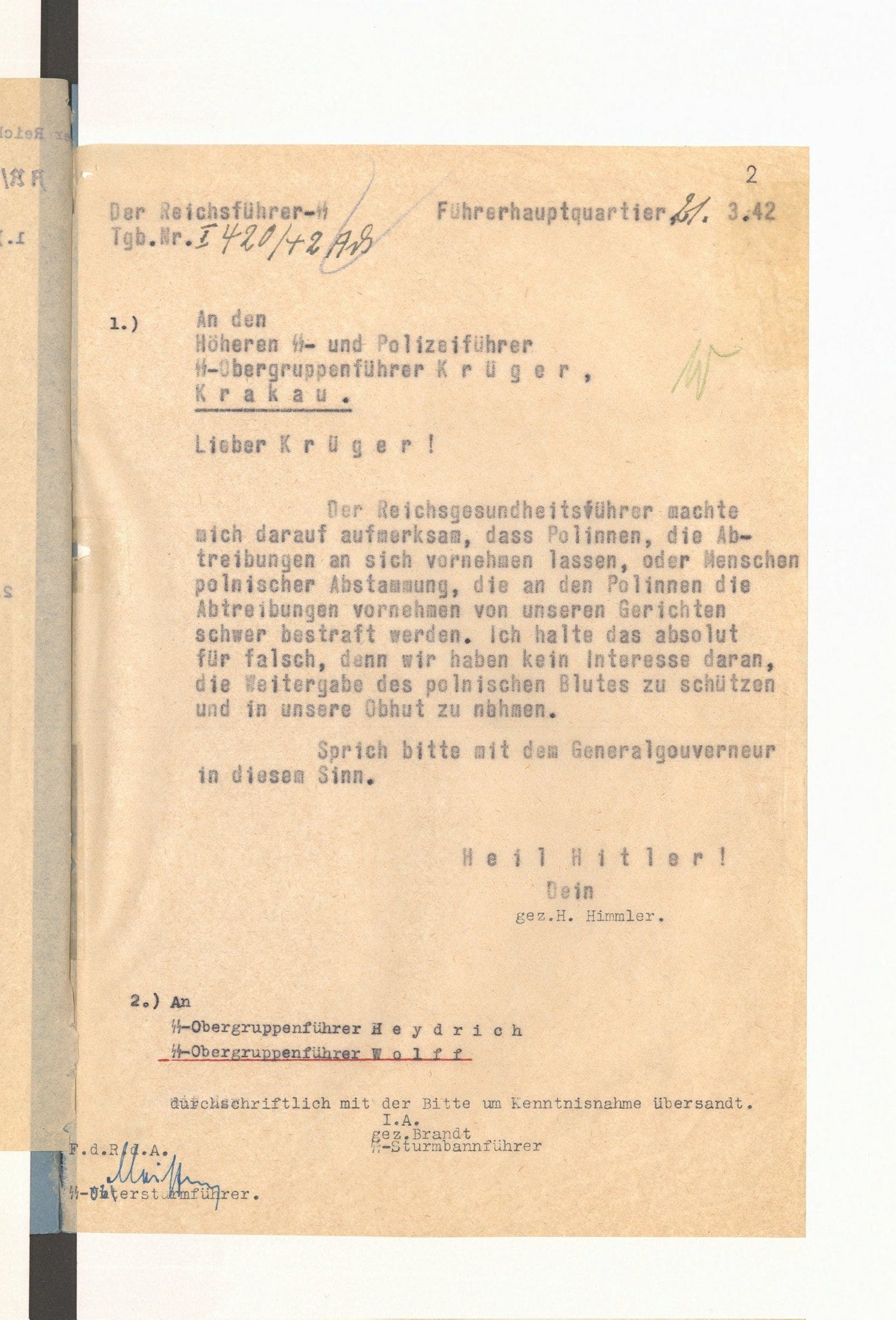
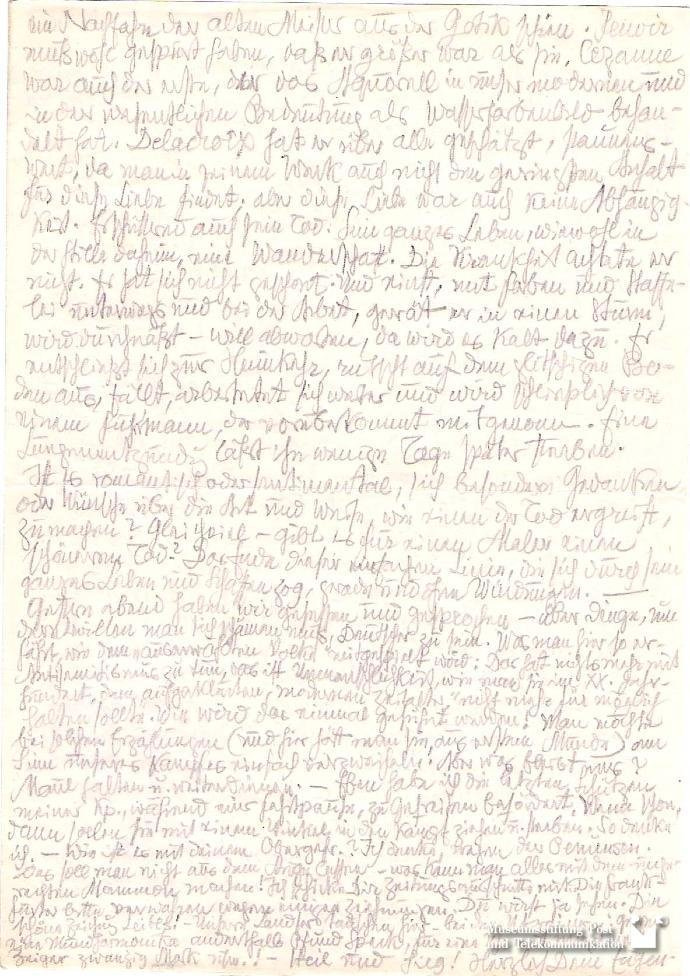

Christian pro Hitler stans remind me a lot of gays for Gaza.
Thanks for the proof Nazism cannot mix with Christianity